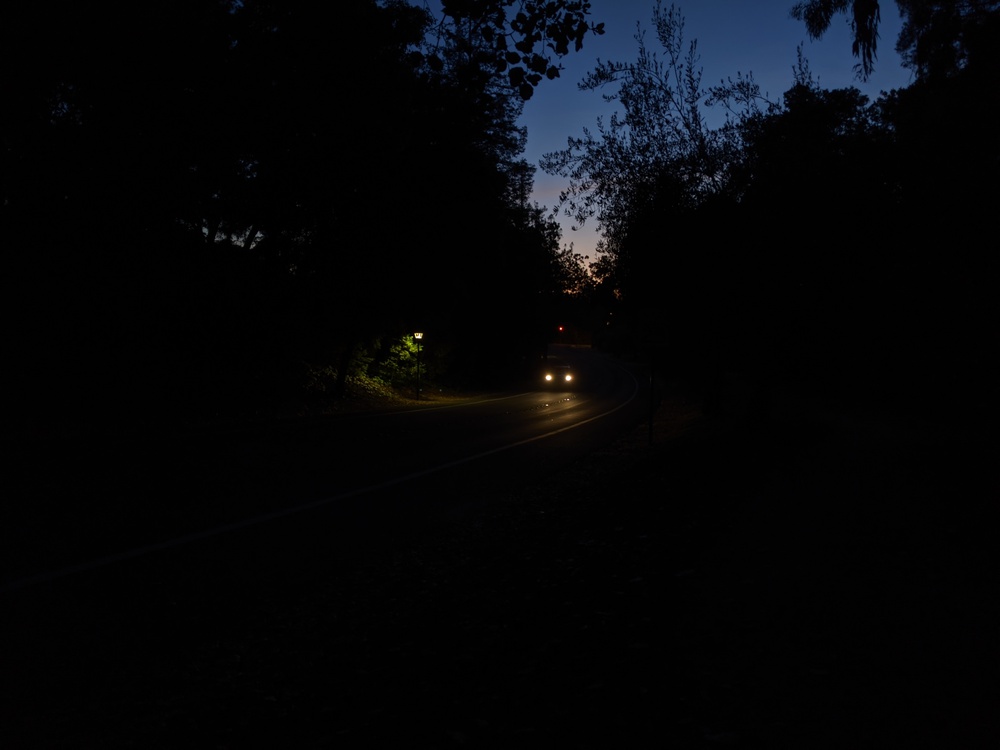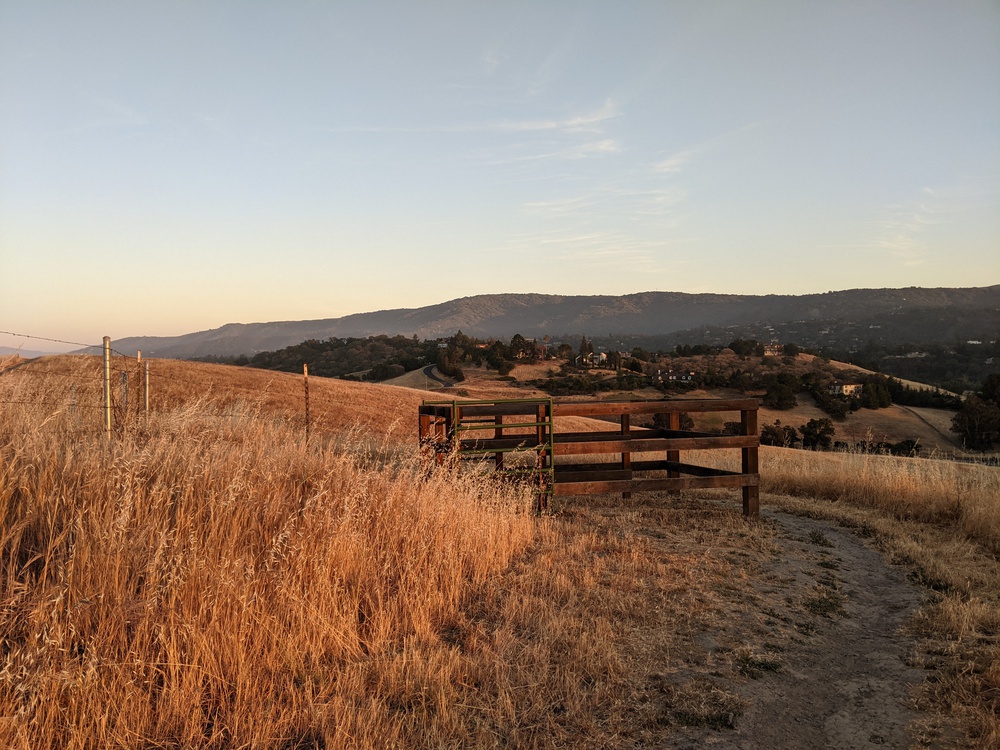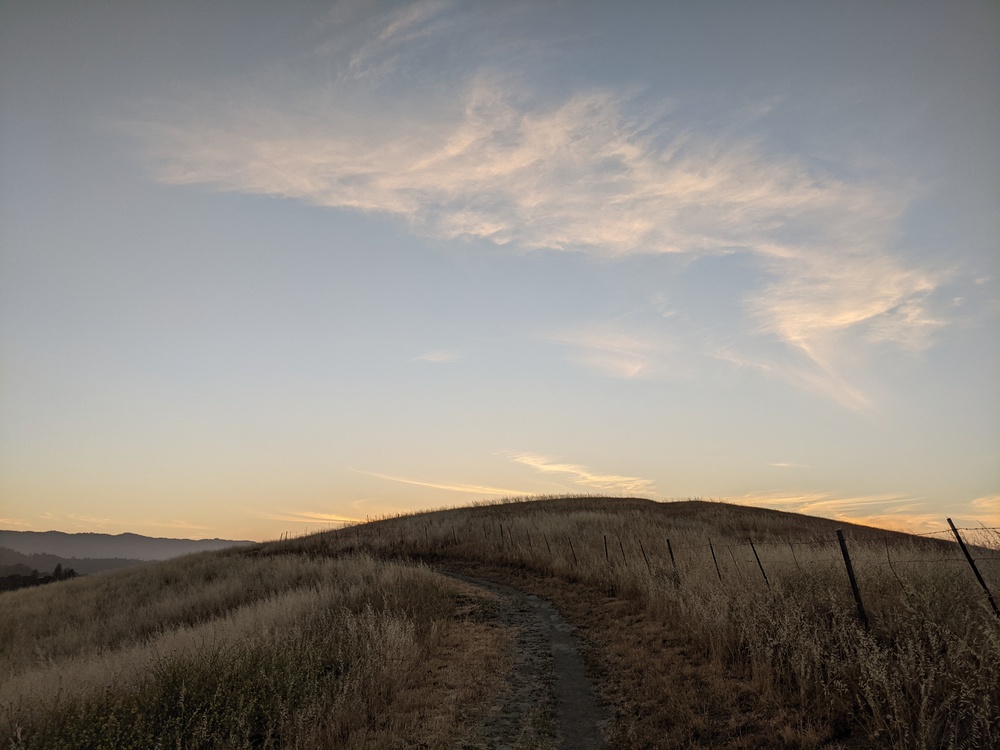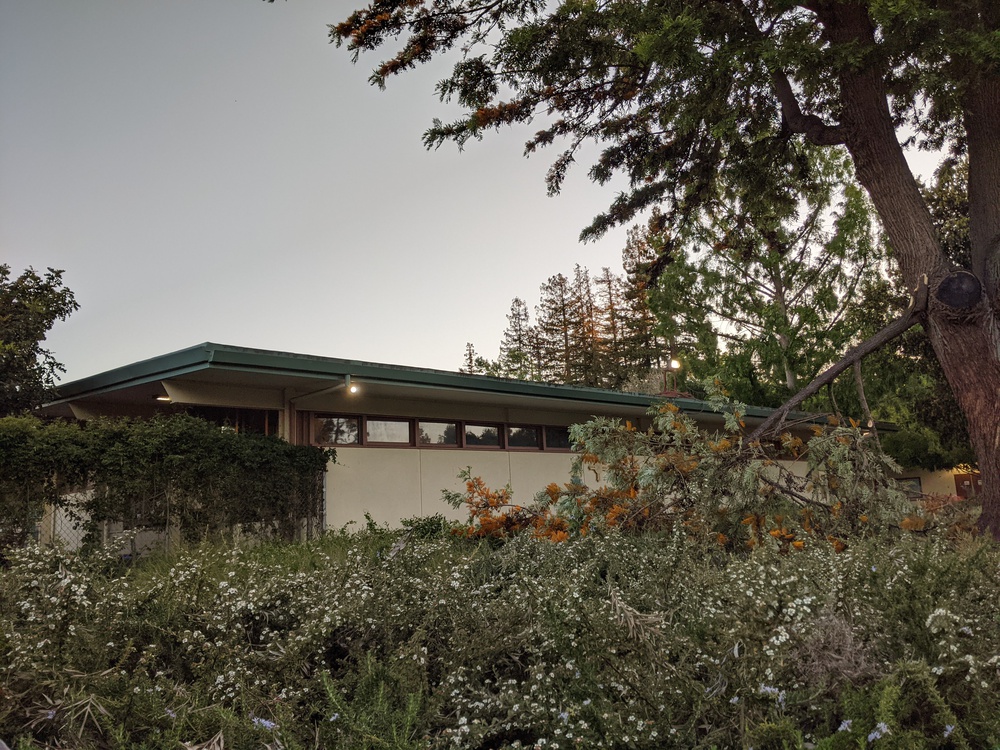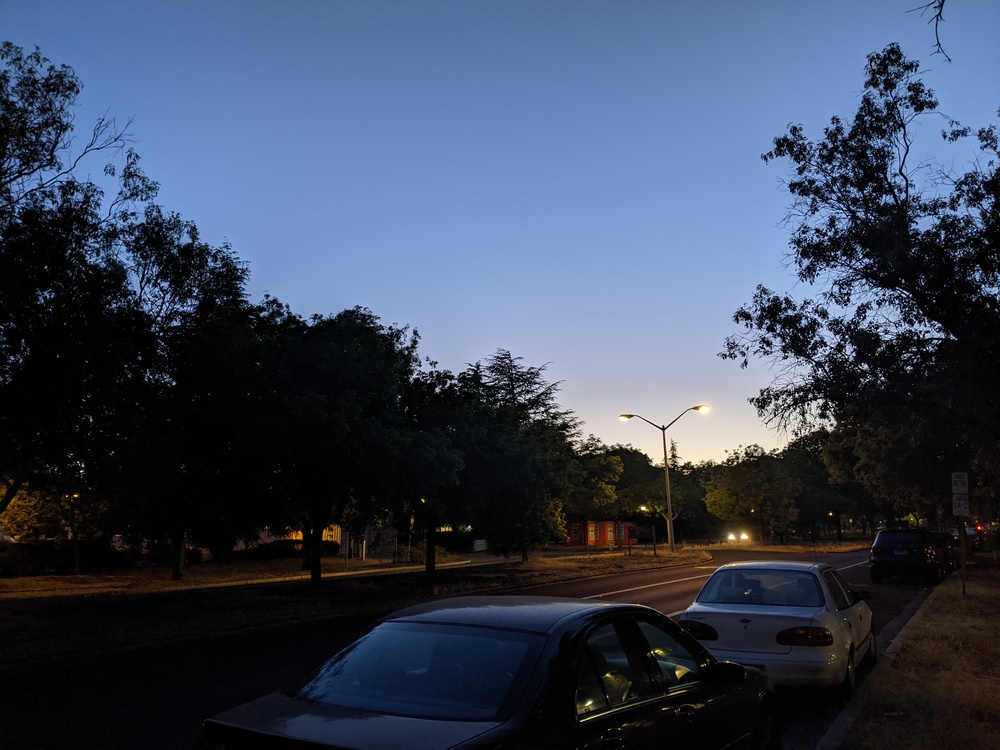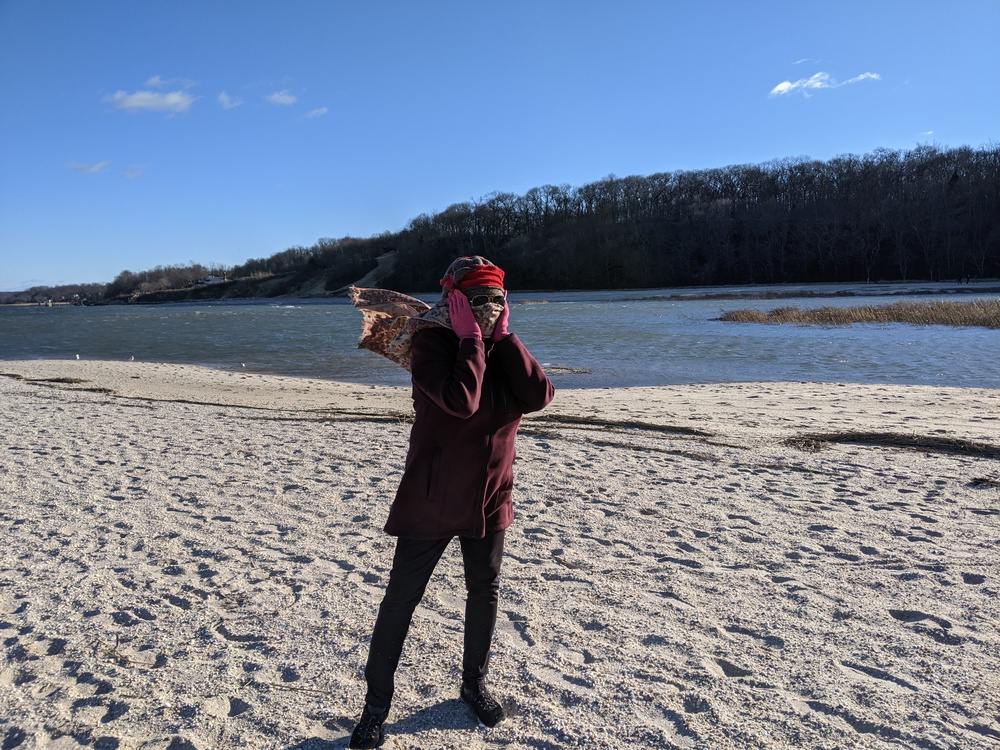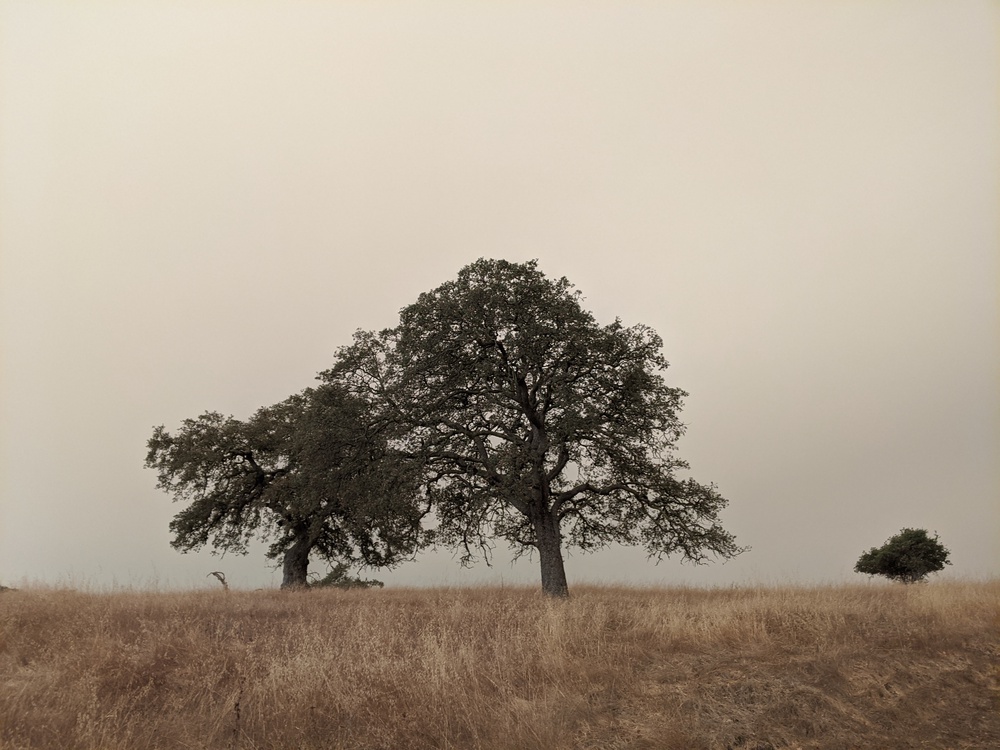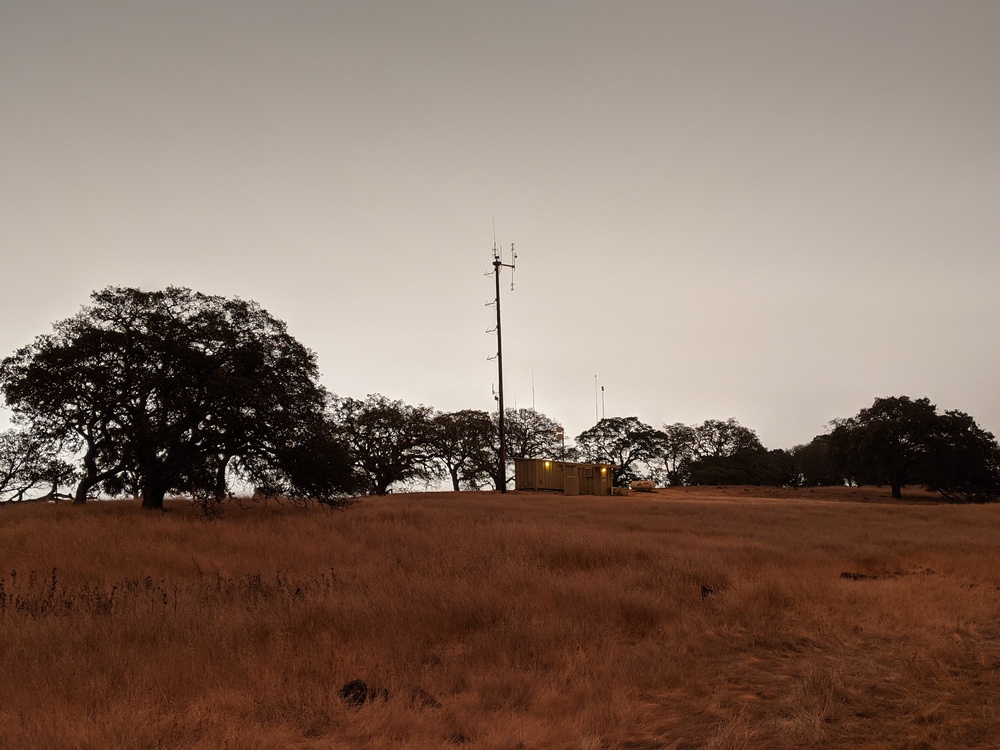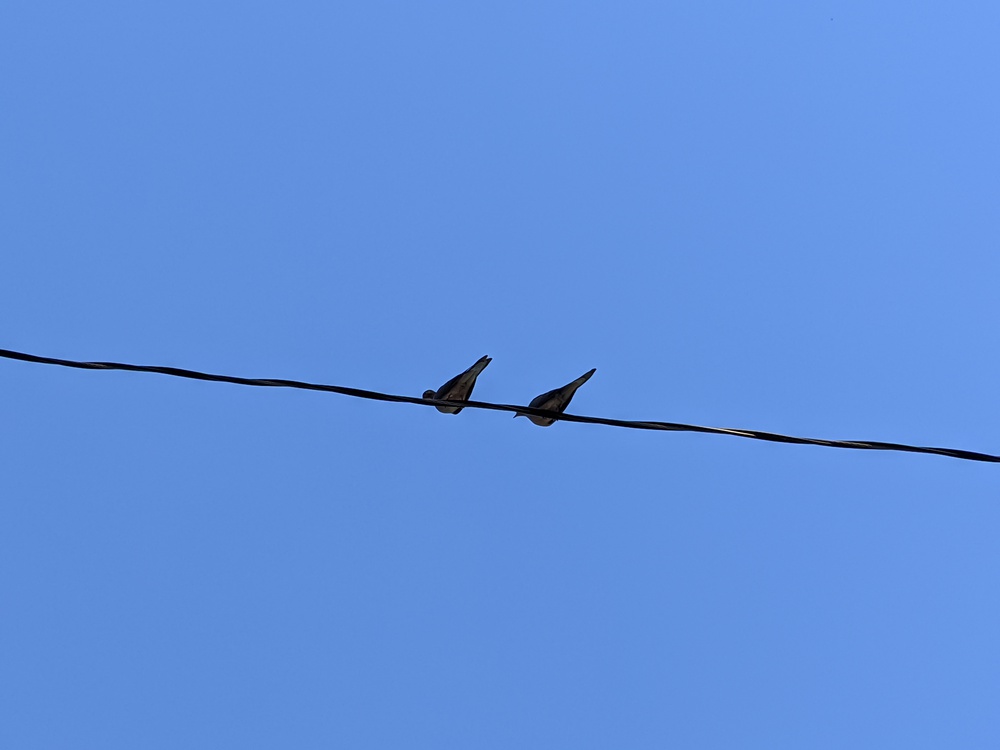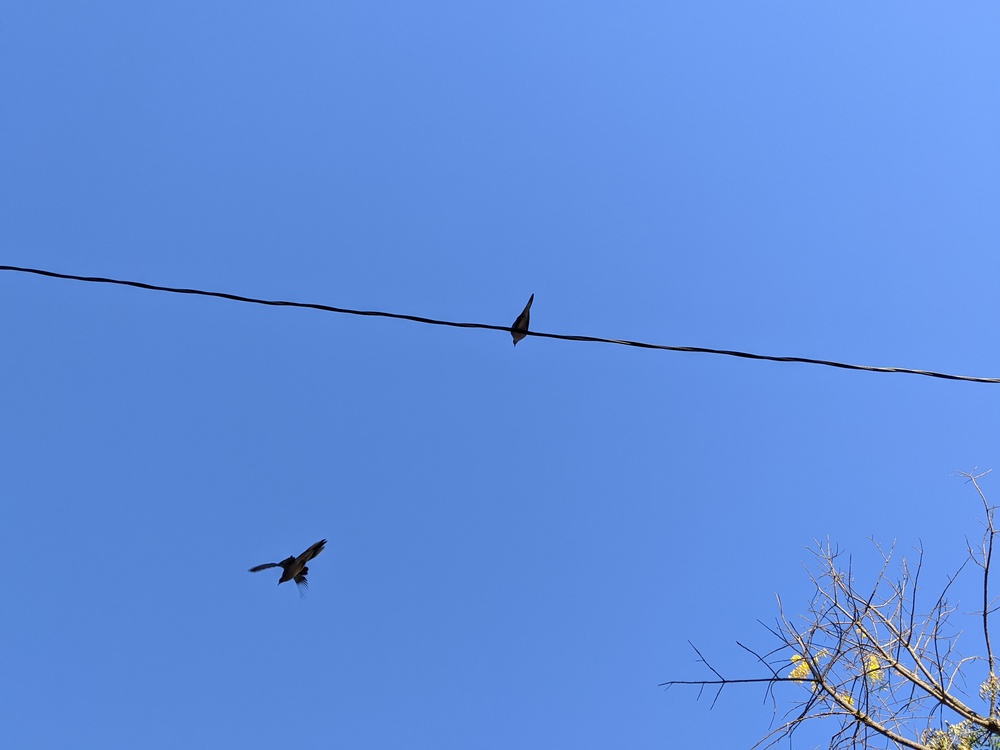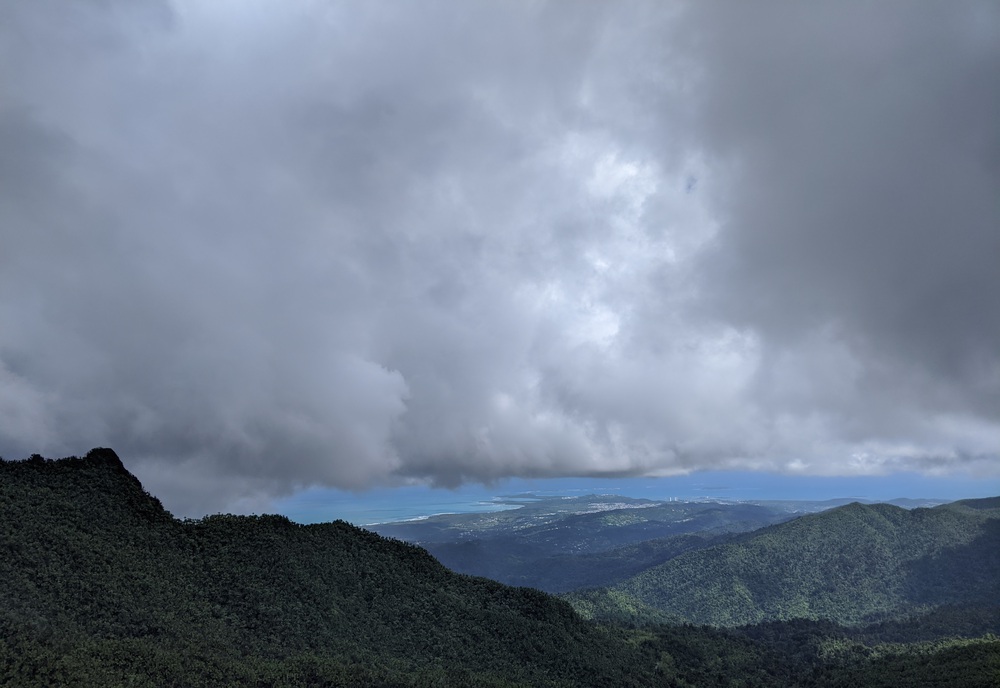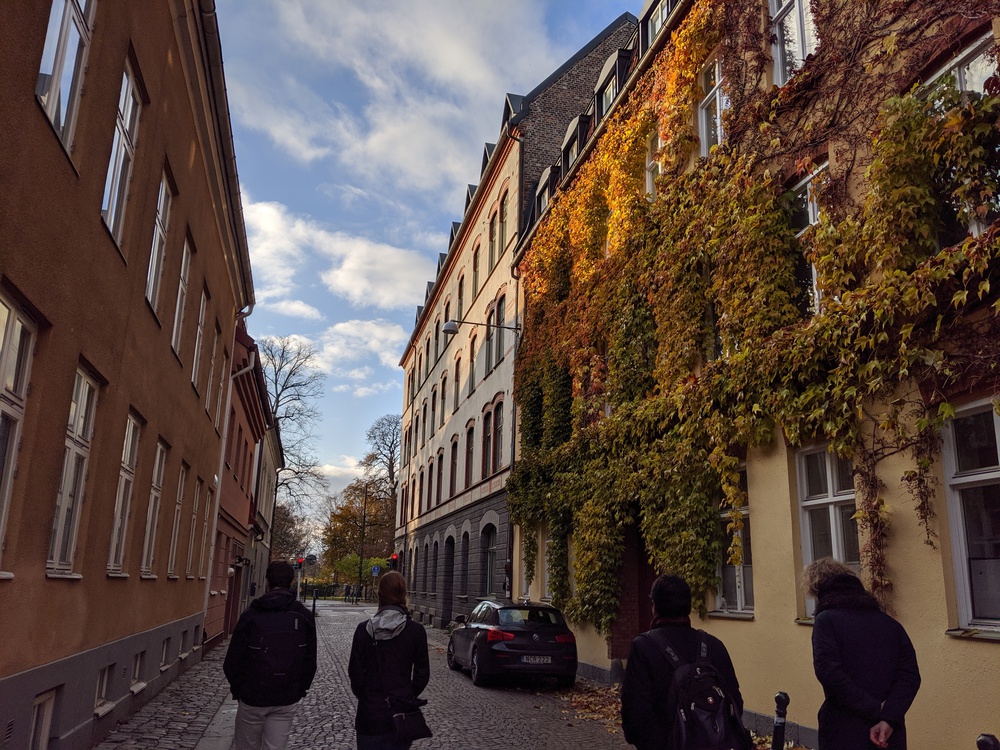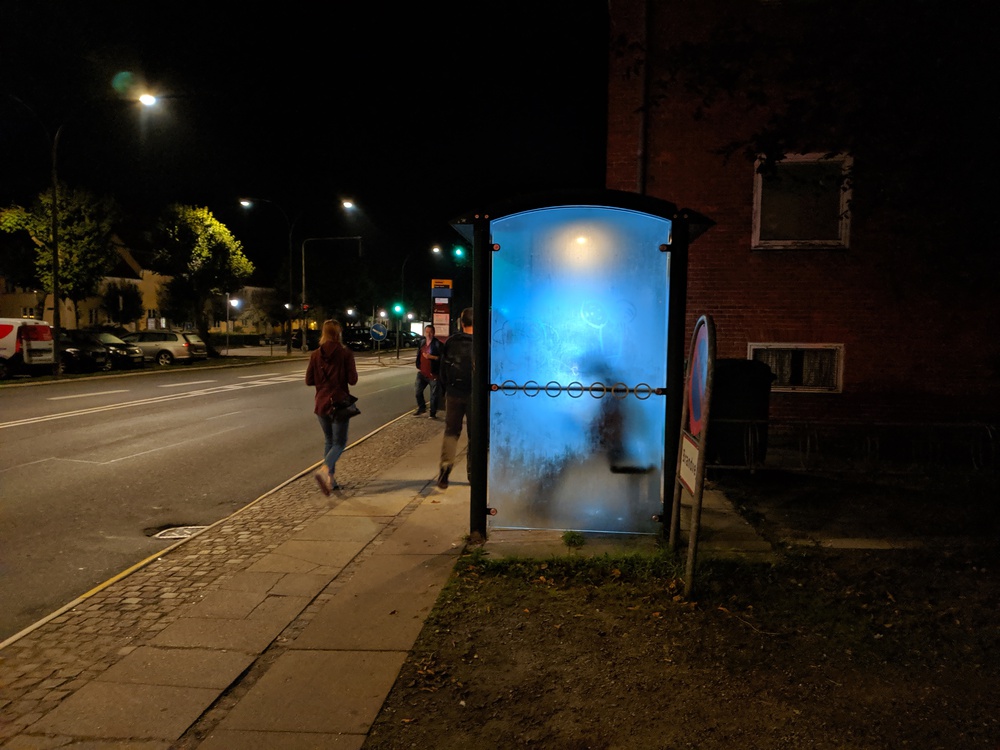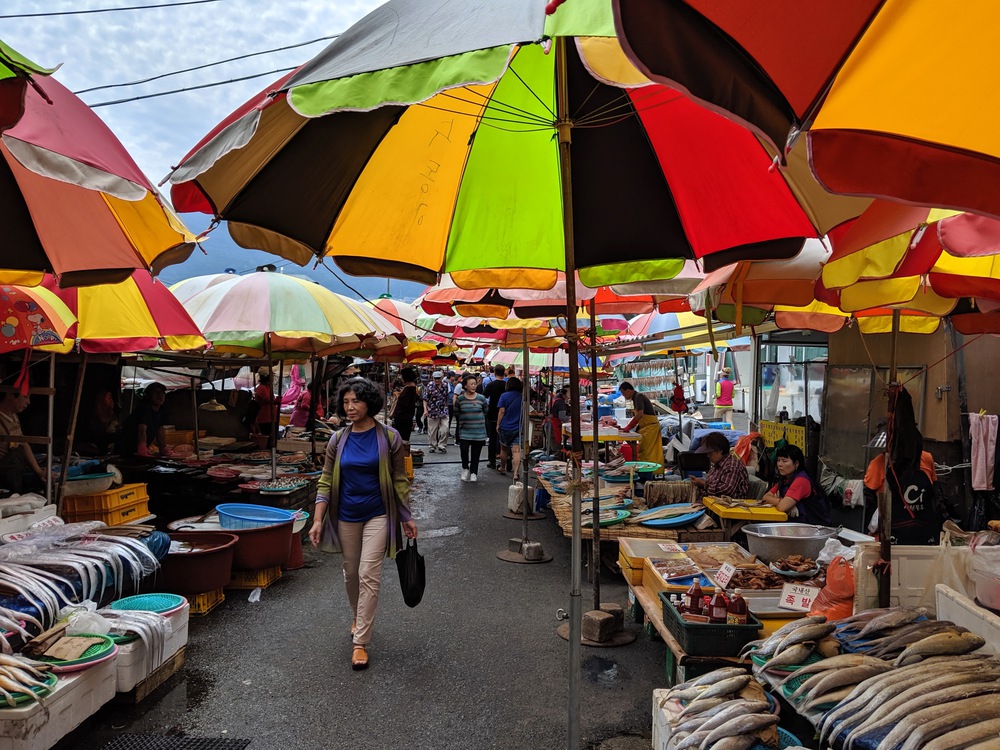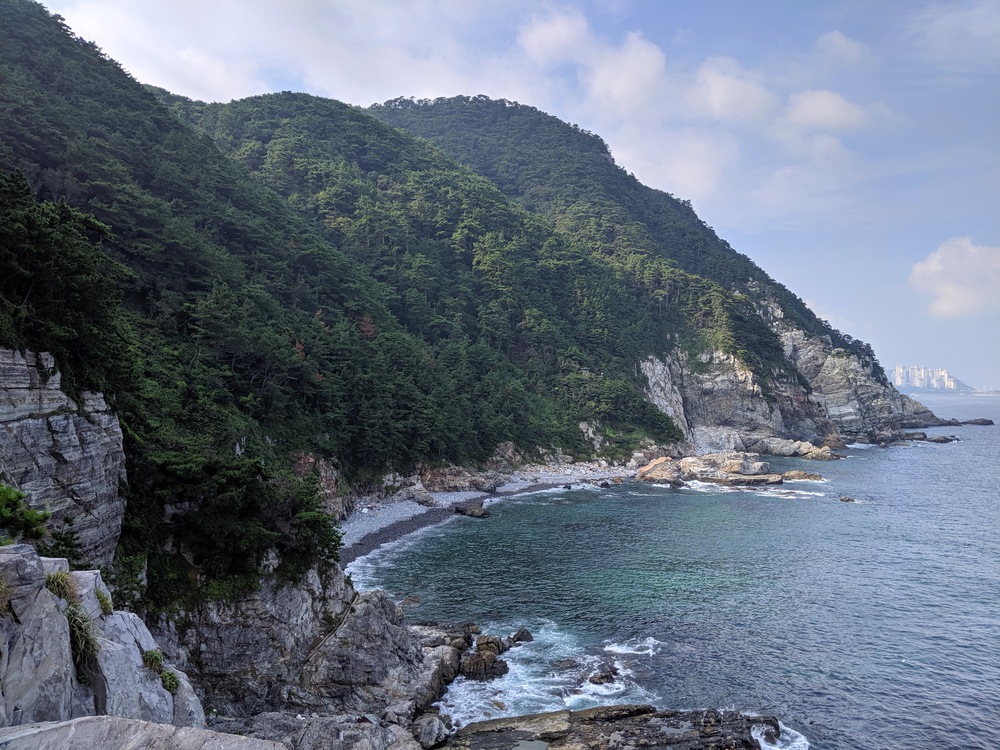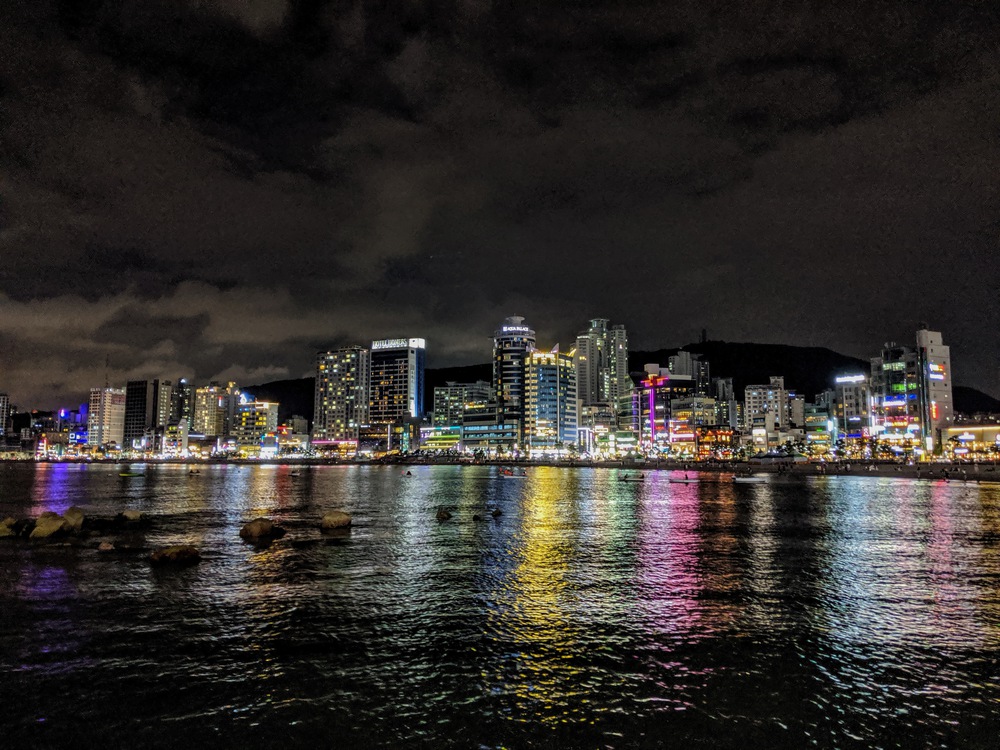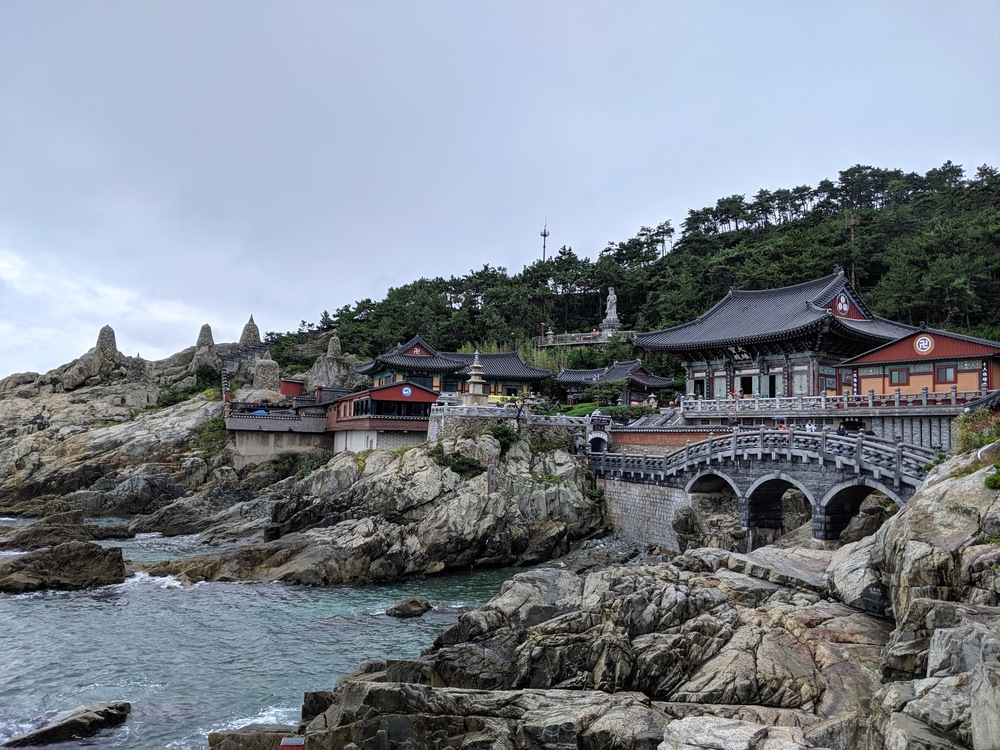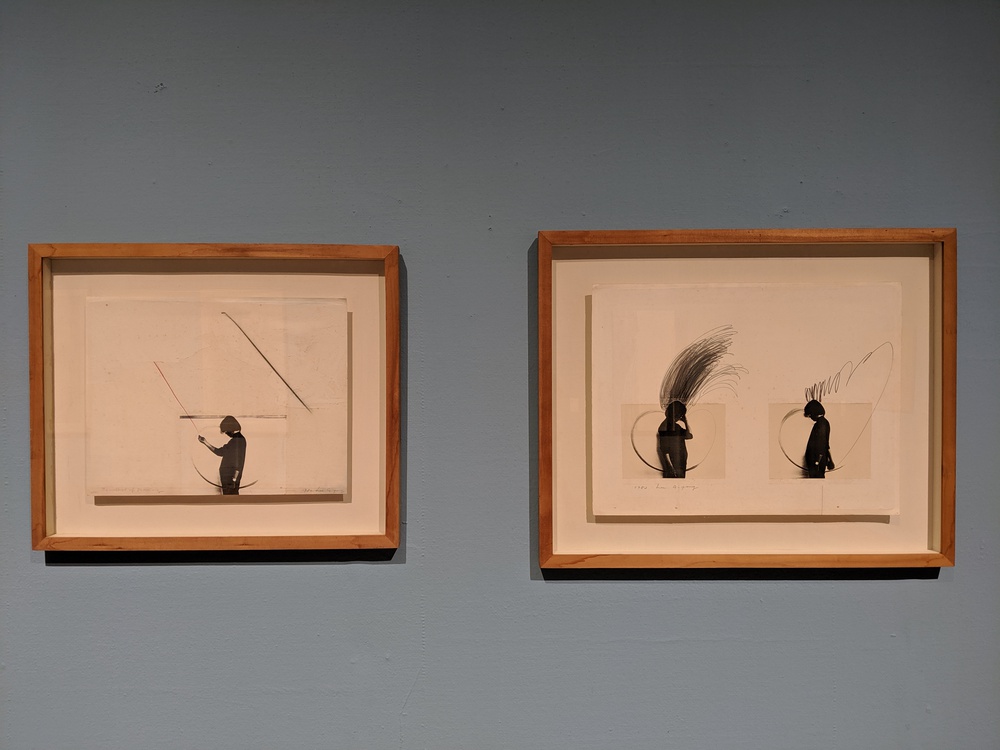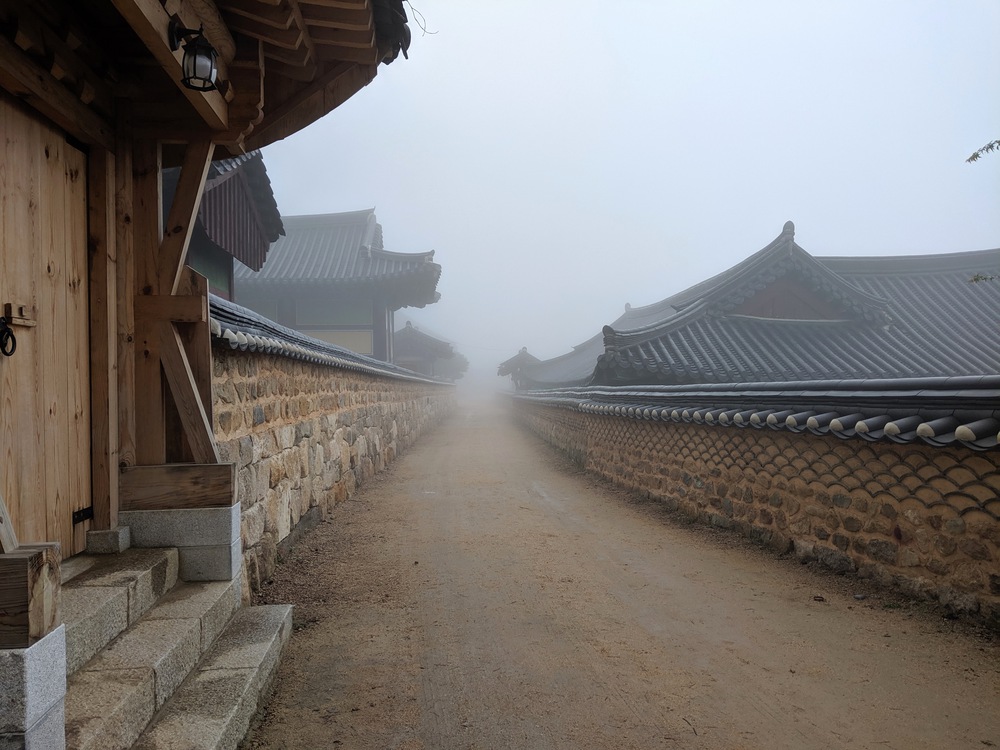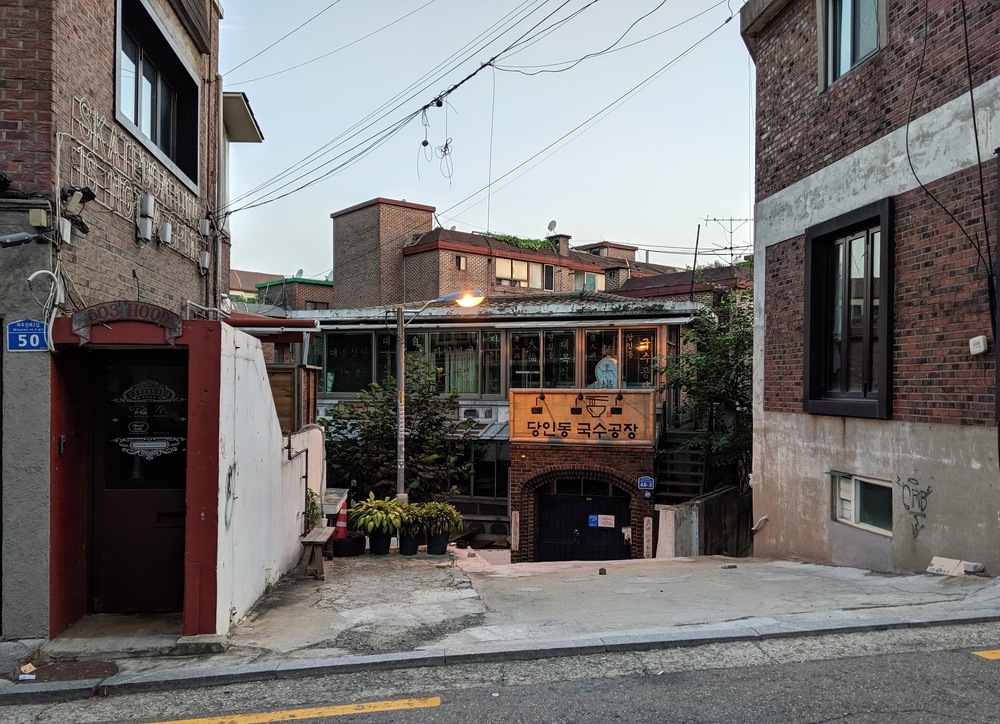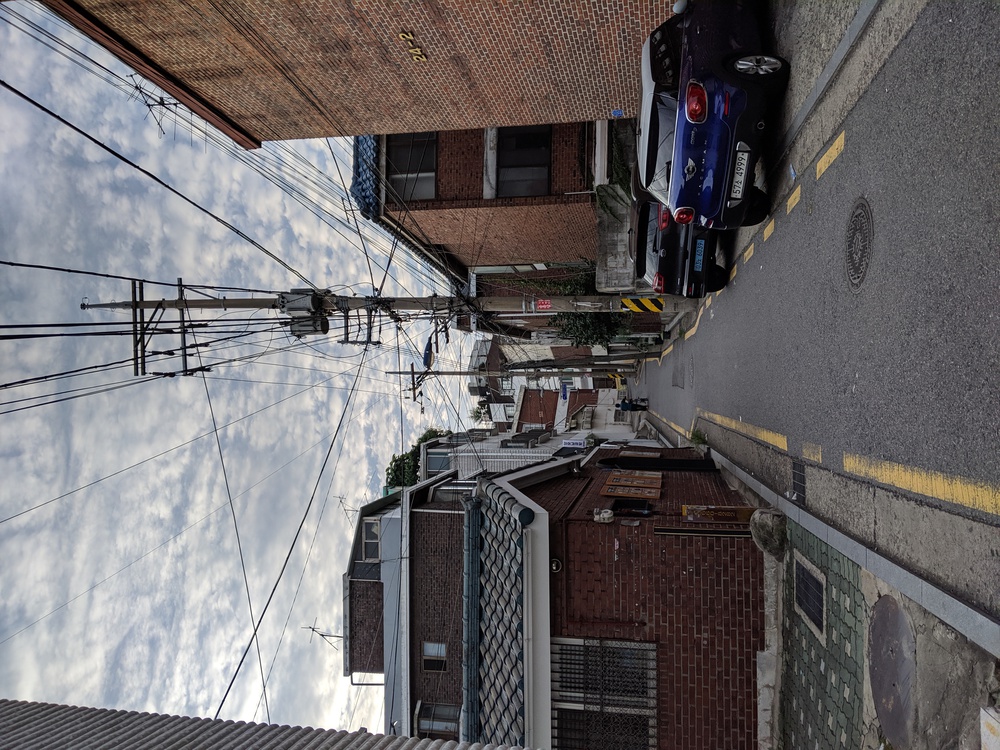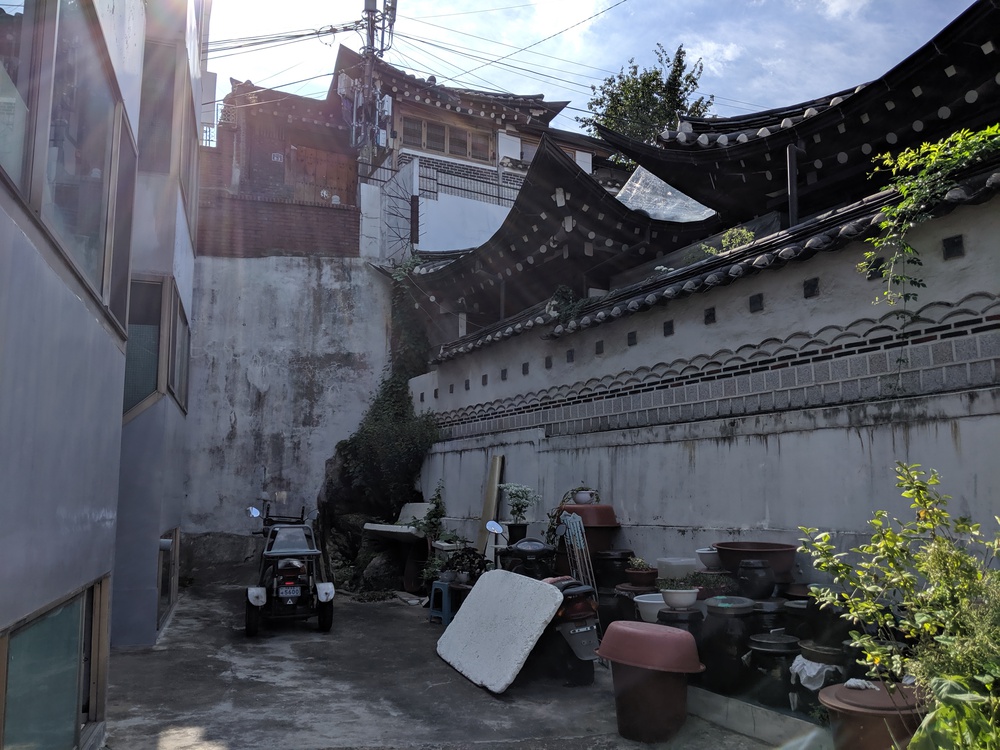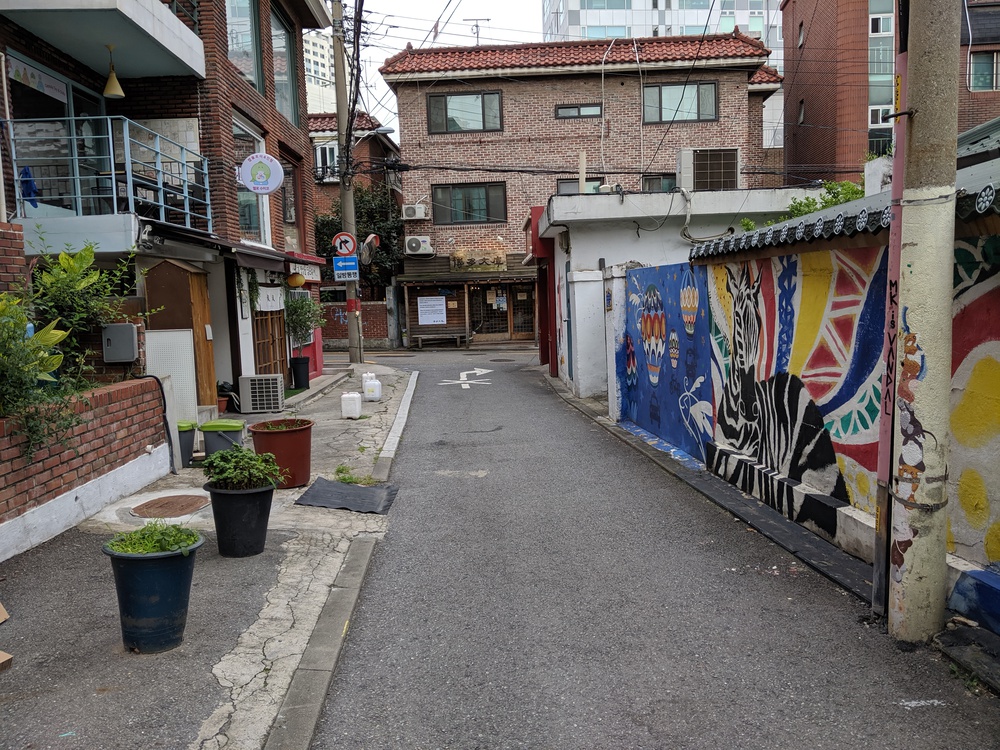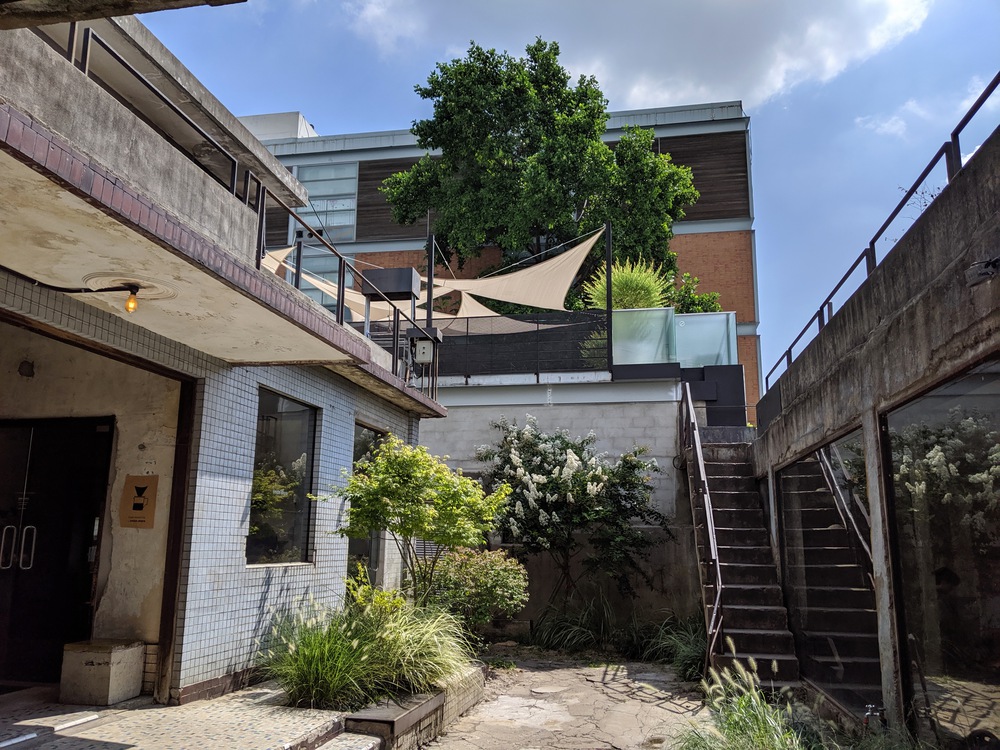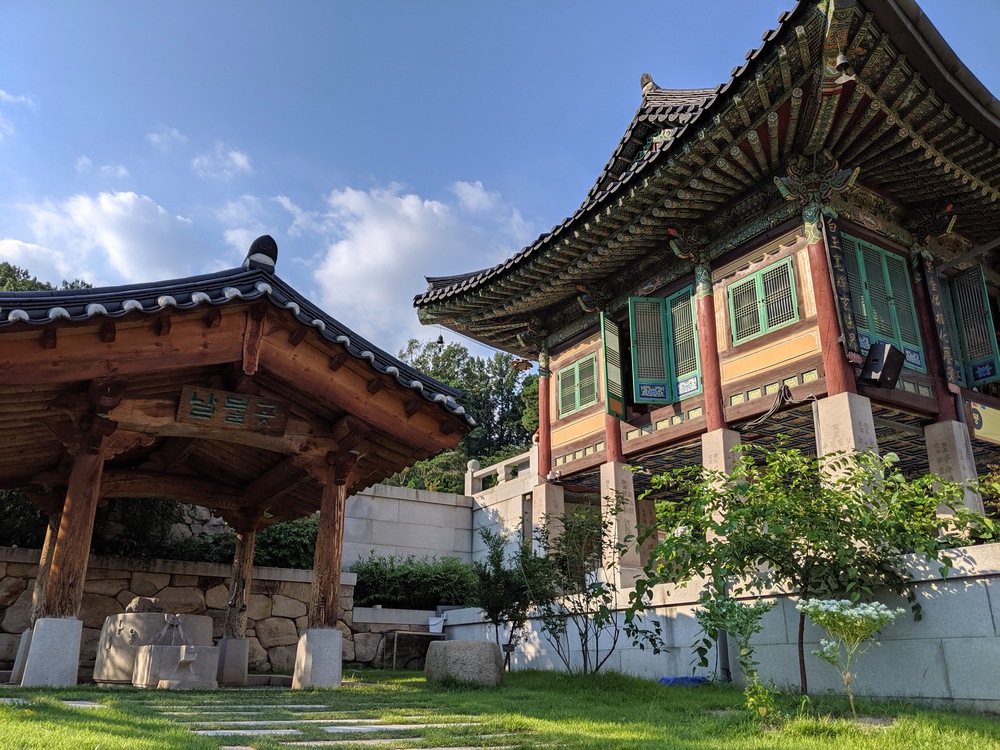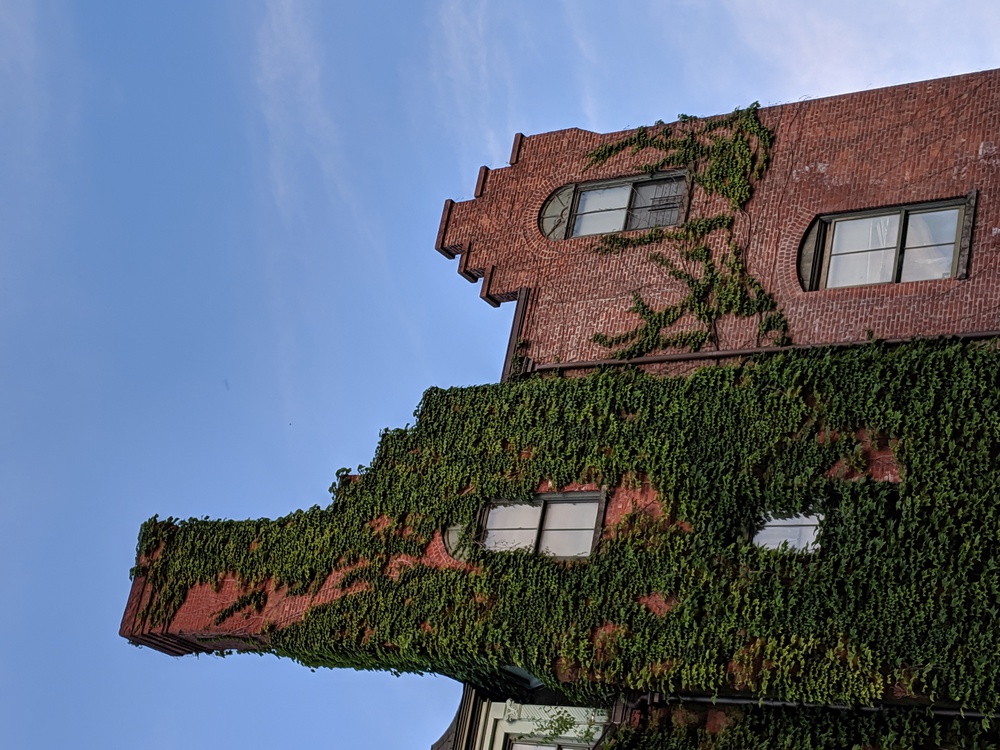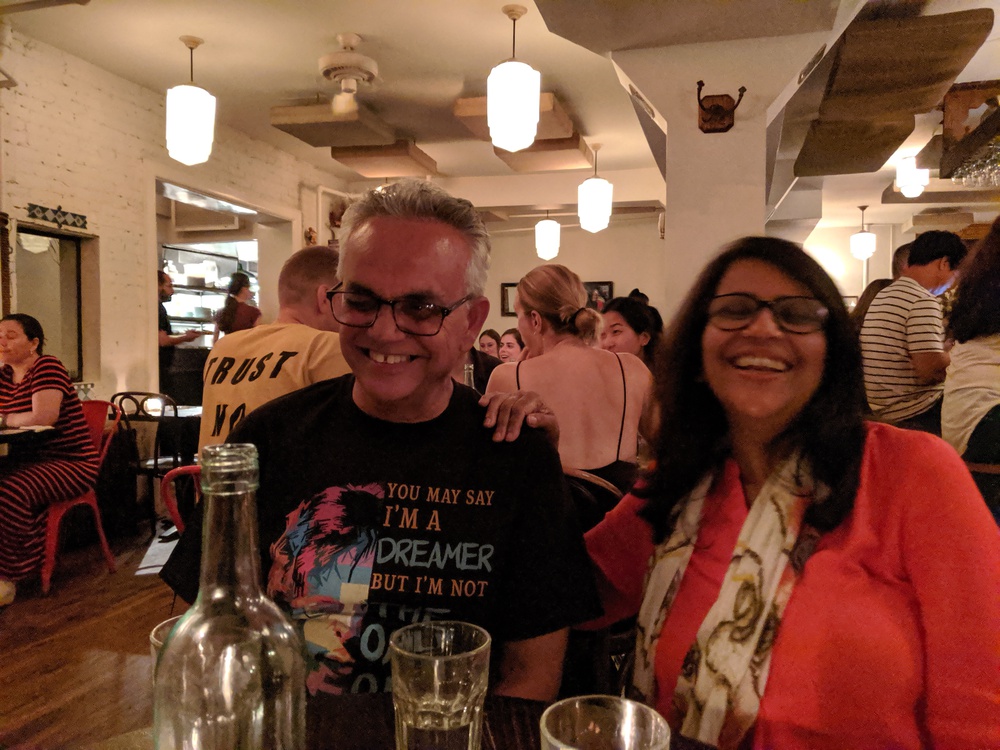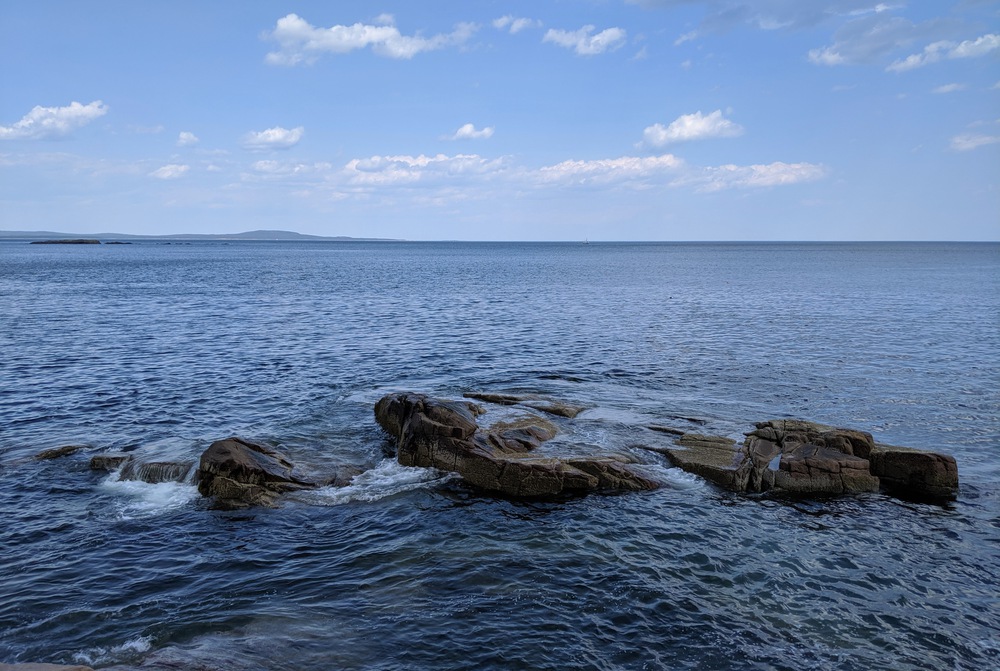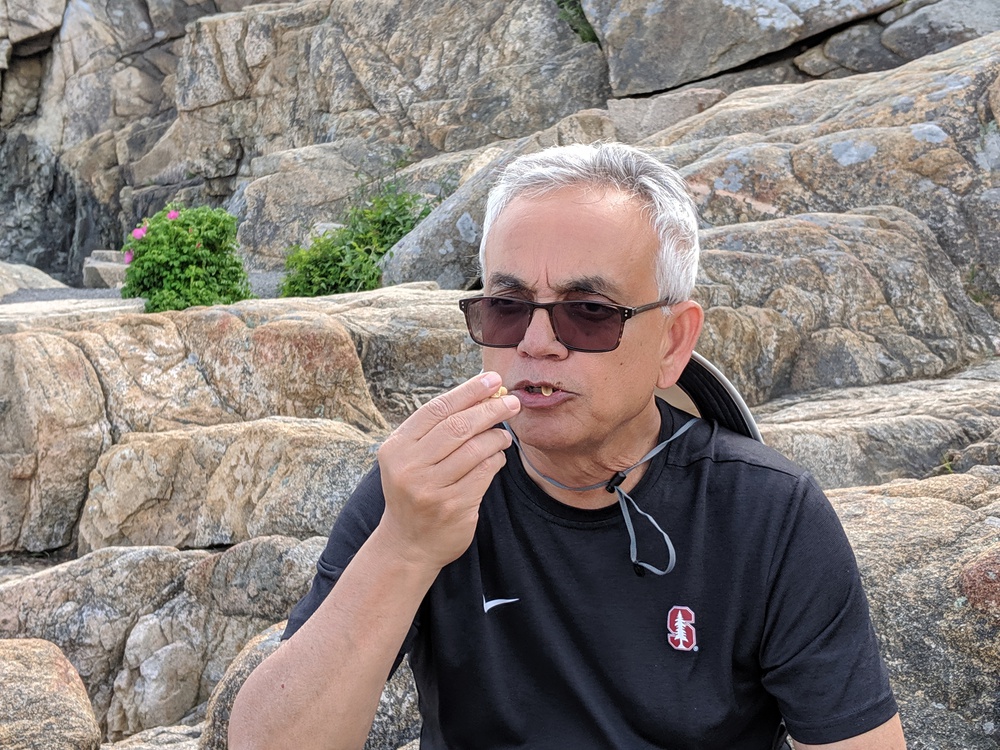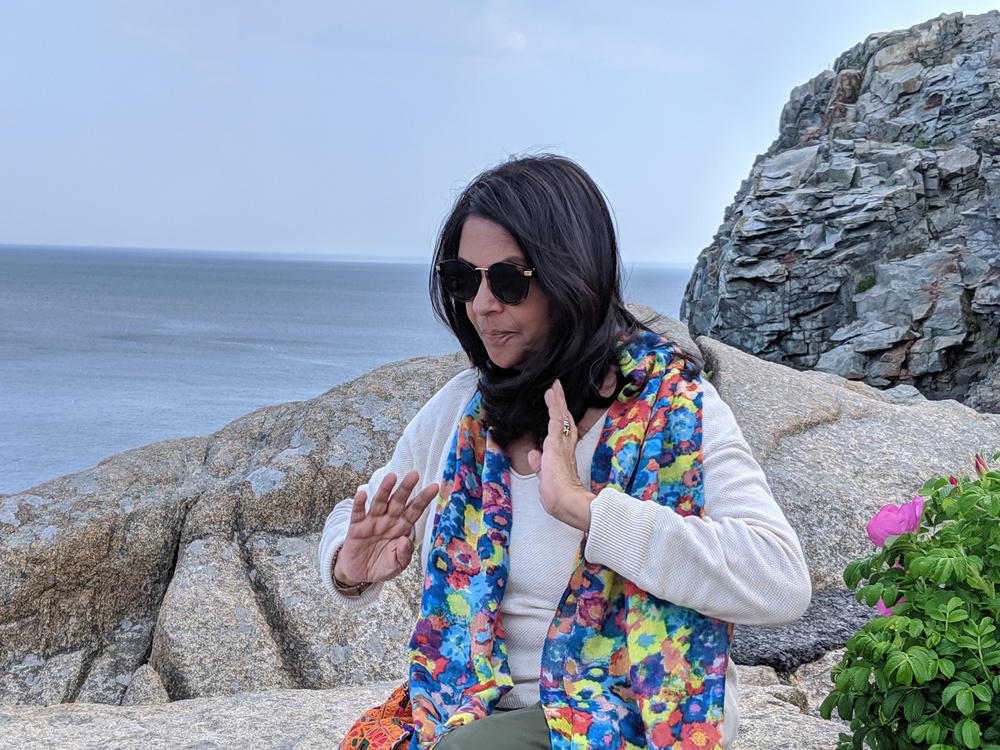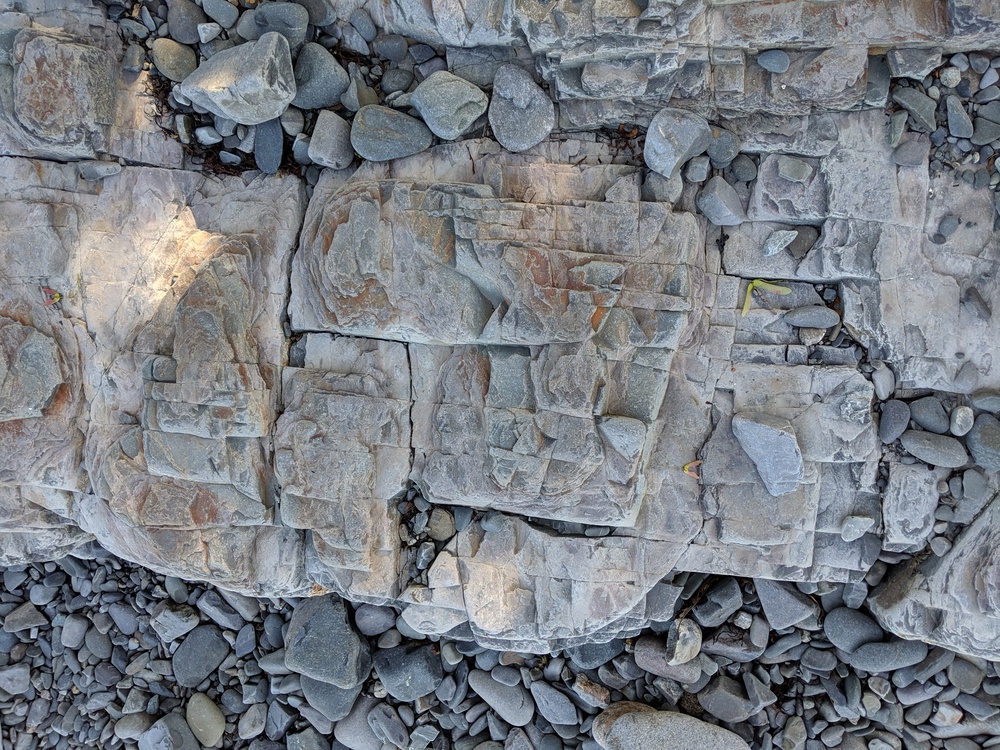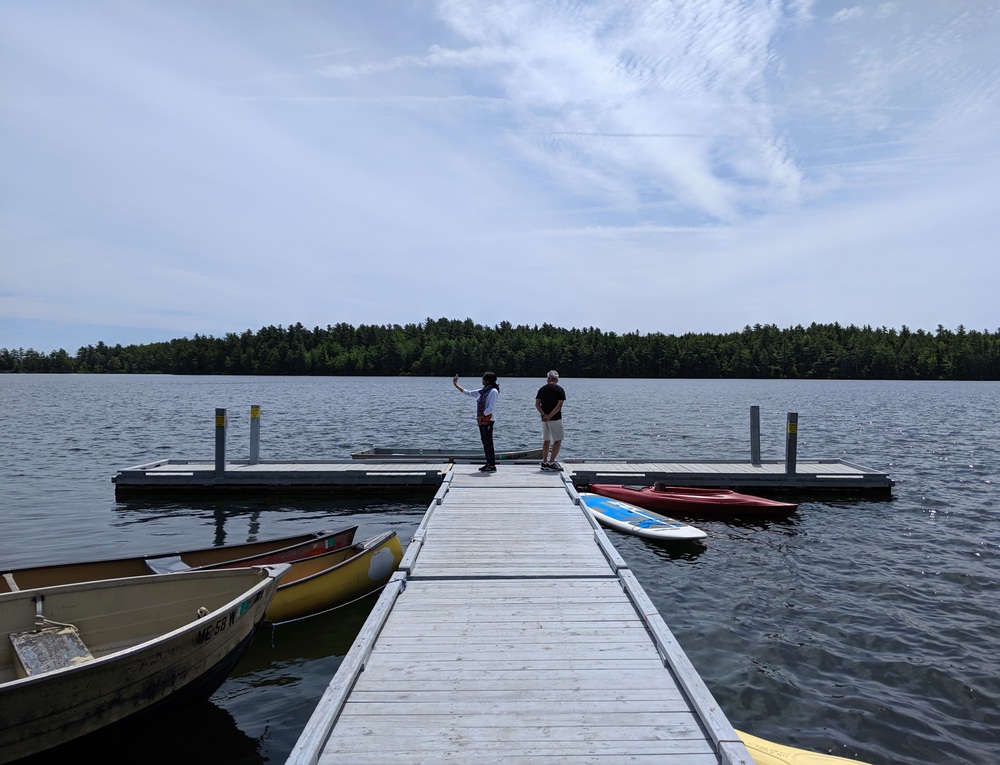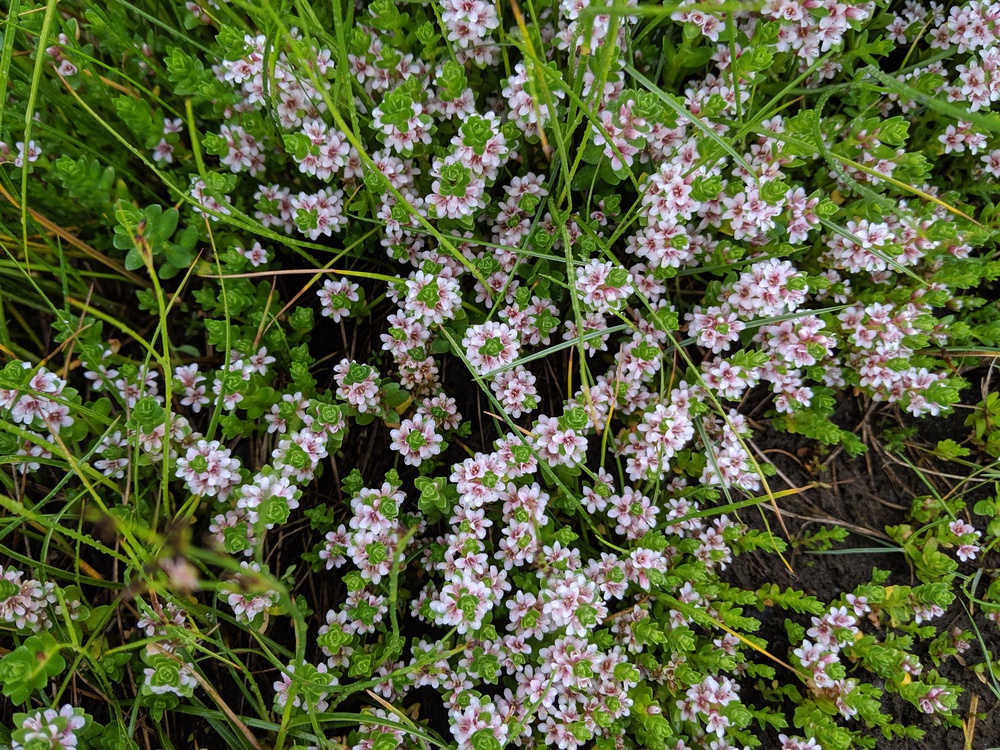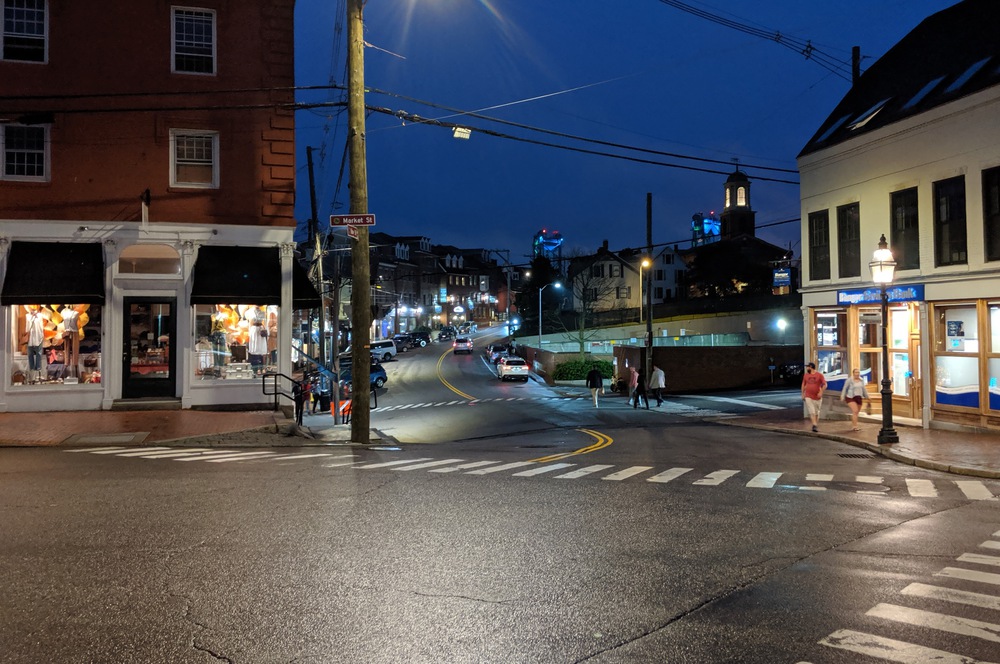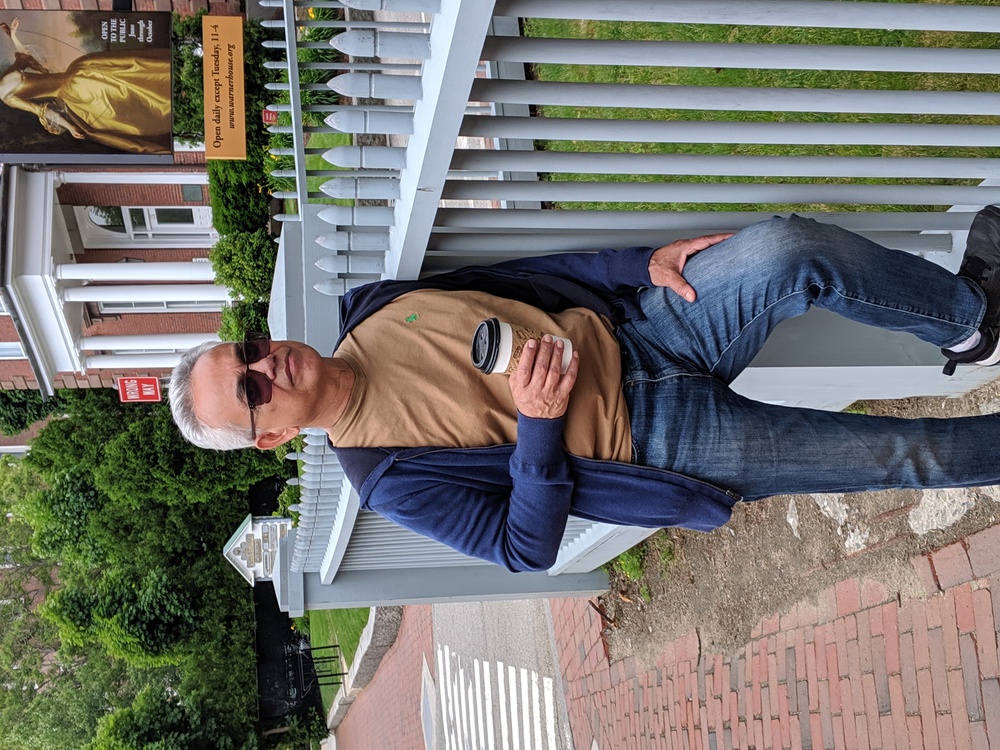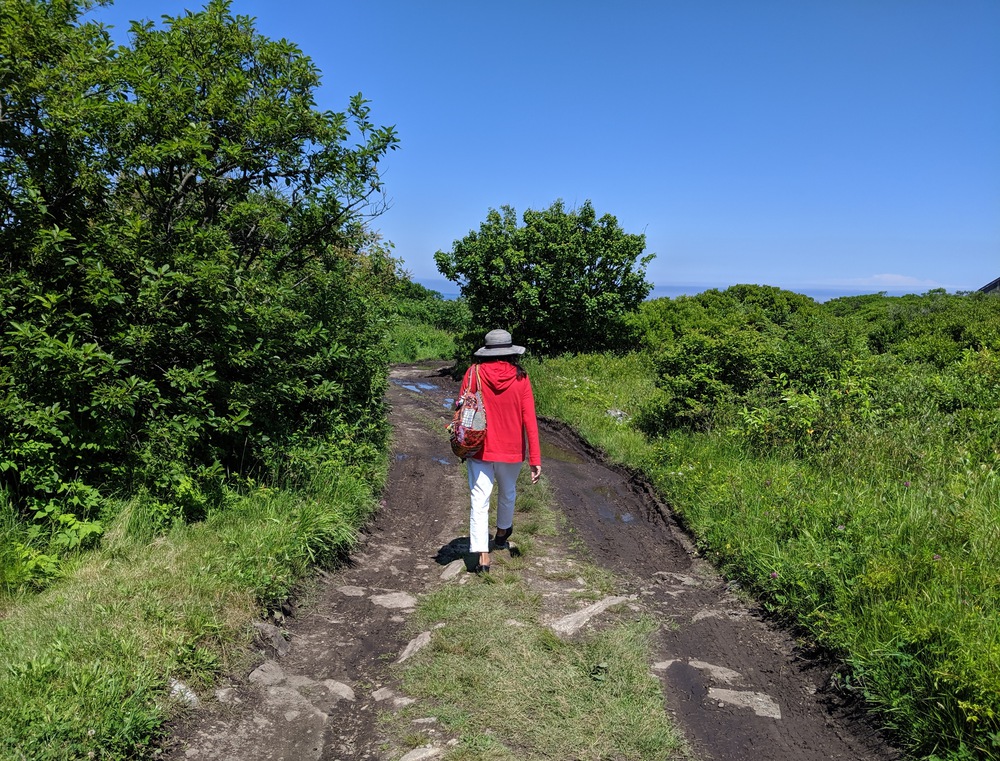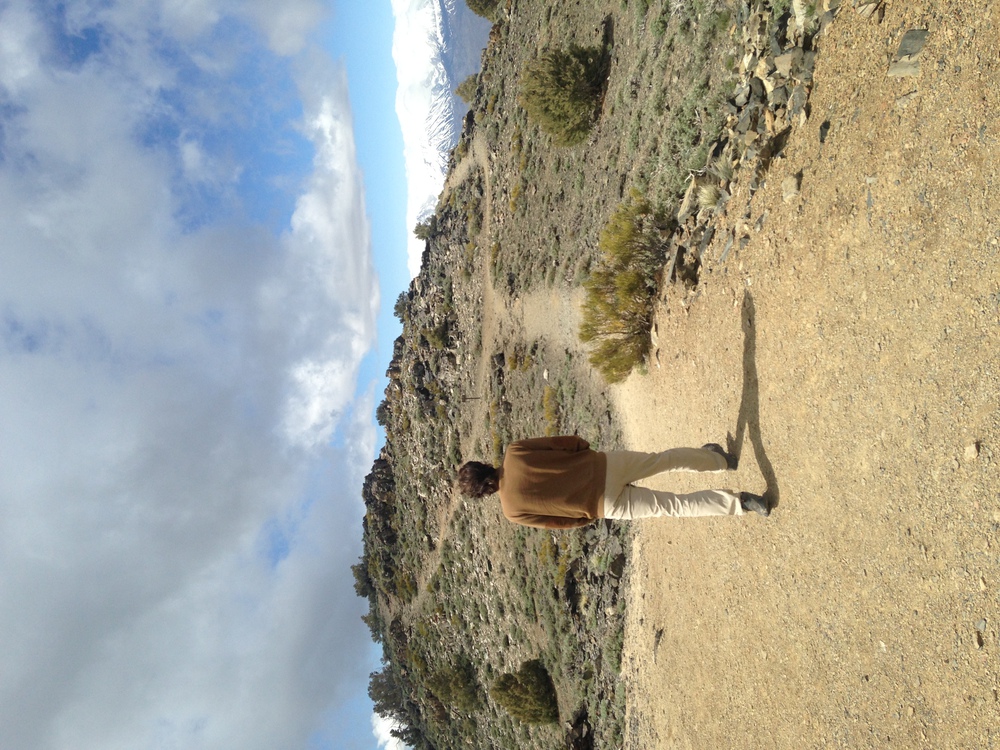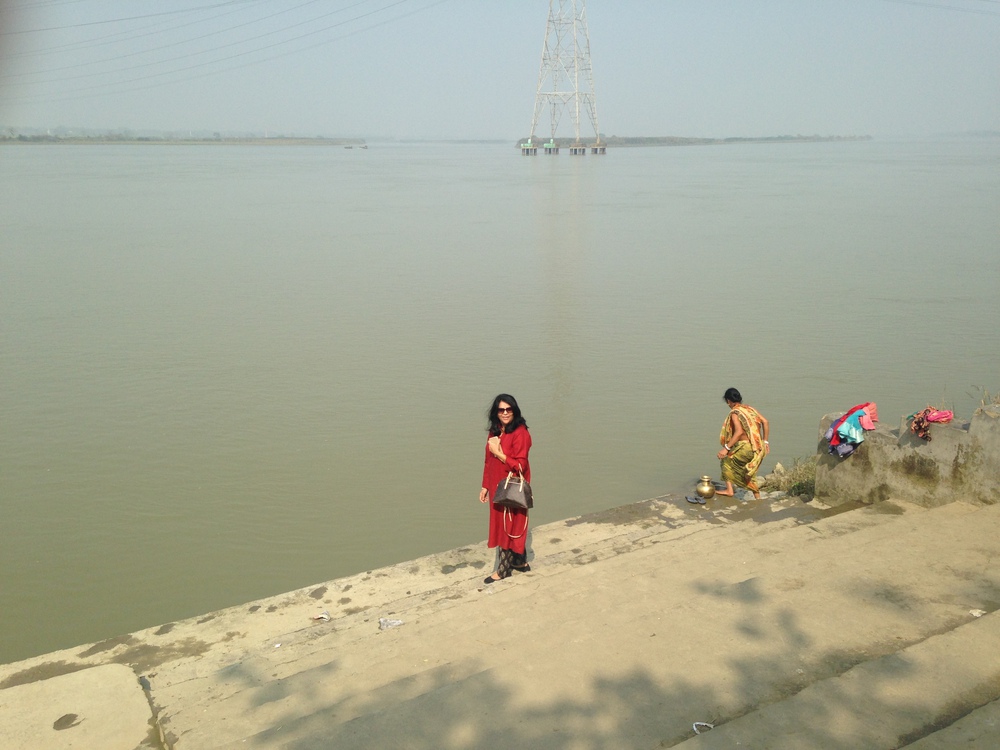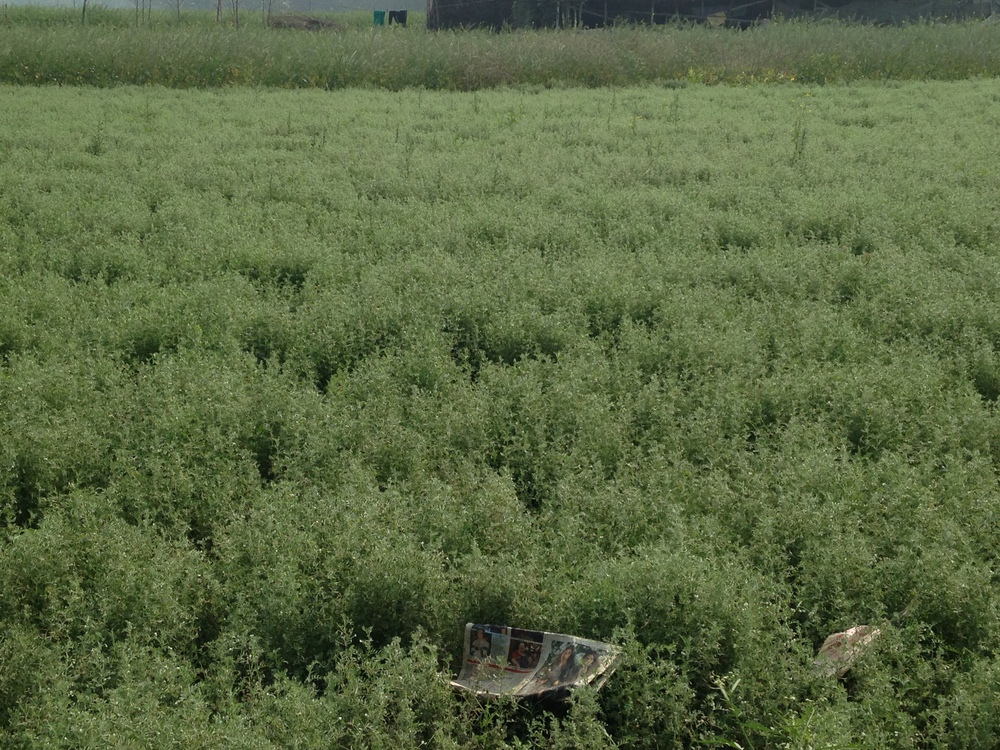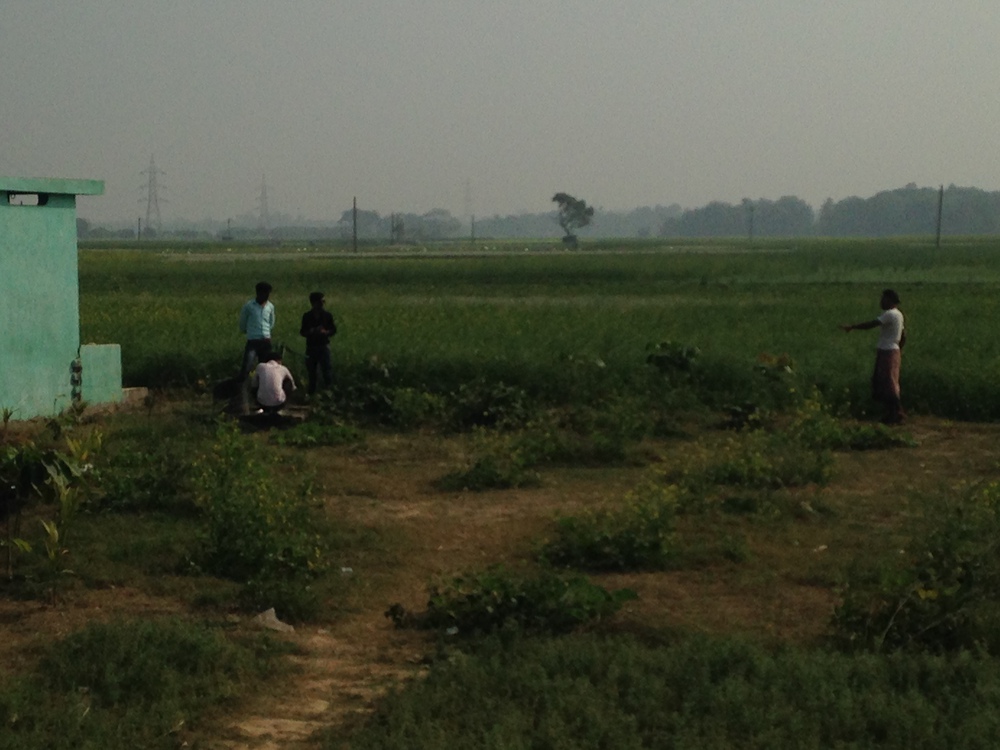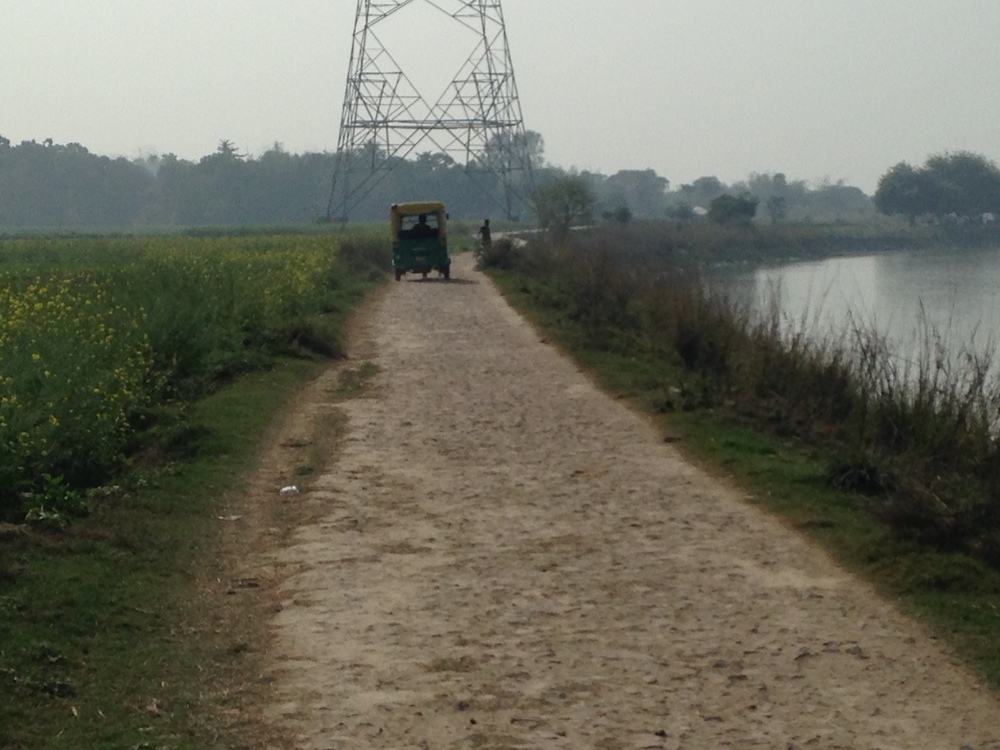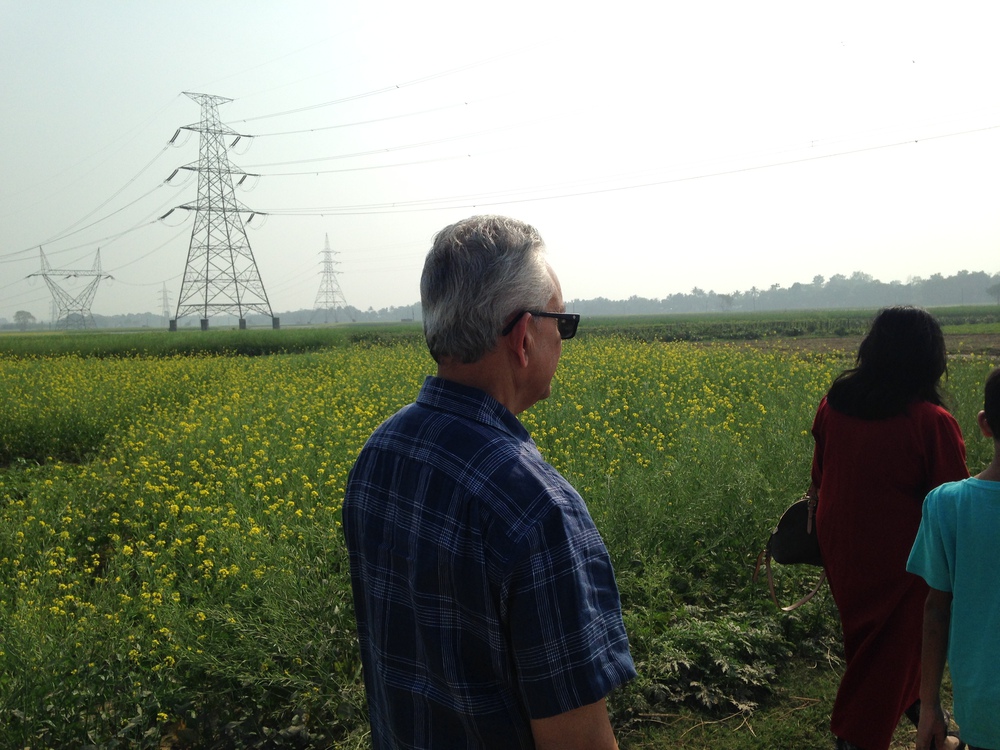Waking up to the first quiet morning in months, I stretch, I wash, I stroll, I waft towards the smell of cardamom, I read that everything died some time ago, I think of we who remain here in the dream of that death, our understandable confusion, the way we gather by the stream, with the trees, for water, then hypnotized by the endless flow of meaning. I join the others. We do our small part of honest work, and then we escape, in search of a stream, the protection of the canopy, the correct path, correct alignment with the satellites, the type of algae that may grant us just one more life, clues about what the others have seen. We return inside to play a different game, we investigate our hands and feet, we root for one another. We gather around the table and consider, in laughter and solemnity, our lives, the food we have eaten, the time we have wasted. Following a moment of recognition, of savoring, of resistance, I leave the others. I begin to ascend the hill when I hear and then drift towards the sound of live rhythm, and I find myself among the redwoods swaying in warmth, luck, constant flux: we have to keep leaving and remembering, that’s part of the work, or is it? I leave the rhythm, I remember that I have accidentally stolen a key, the rhythm leaves me, I worry, I plan, I stroll, I tell myself everything is going to be ok, I stretch, I wash, I sleep.
i close my eyes and see an orange box containing purple.
i think about my thoughts yesterday about my weak mental imagery.
these thoughts, and thoughts about recording the experience,
interfere with my vision of the box. it weakens.
i try to let go of the interference and return to the box.
it shifts, maybe a fruit. i think of jam, and preservation.
September
Do we begin with the past, present, or future?
Do we lovingly resist these urges?
I scurry arround building infrastructure to breathe.
I float on light steps enveloped by your voice’s ease.
And in silence, I find comfort in my own song.
Do we keep the most important things to ourselves?
I did only what I could: I waited for your word, I rested, and I rode.
May these new floods return us to lost comforts.
I feel a need to start over.
October
Even the moon gets lost, sleep sounds gentle.
There are different conceptions of honesty.
The earthsounds and earthquiet.
Names change each time they’re said.
The moon is bright now, mostly.
Like a stranger’s kindness from a balcony above.
How are you?
Can you help me?
Nothing is good,
Nothing is bad.
Continuity is everything,
It is easy to destroy.
Living through these experiences,
I am reminded of that.
A cloud moves on,
The birds move on and return.
The spring surfaces,
I walk along.
I want to see deeper,
without destruction.
I don’t want to wake up,
or go to sleep.
The flowers return,
and move on.
can you tap gently, left foot?
left hand, left brain, you too are under review.
consider every last thing: is it out of balance?
has it been alive? in love?
remembering left turns and wrong turns…
what will i have left with today as it turns?
i could only answer your questions
by sitting at your left and saying nothing.
the world is out of balance,
because it is almost none of what exists.
does everything want to be left
to its own devices?
do i want to be left
alone at night?
We were all taking a big inhale when all of a sudden an unexpected train zoomed past us, and in its wake, as we exhaled, we saw that all of the snow had melted, and the land was revealed to be a desert. The change was abrupt and uncomfortable; we had difficulty adapting; and soon, we were dessicated: the substance of us—our children too, their substance being especially, visibly fluid—it all evaporated; we became all sorts of clouds in the sky. Each of us had to deal with this in our own way, of course, but after drifting in uncertainty, in strange, changing formations, for many years, it seems that we began reaching similar conclusions, and it began to rain. Finally, we were gentle, and we could give ourselves back. If the snow returns, I will not know.
the moss at the edge of the stairs
the light at the edge of my eyes
the sonic boom of business falls, envelops, lingers
the missing bench at the edge of the path
the missing return of hello
the impatient, desperate desecration of trees
the gentle waves at the edge of the lake
the patient mountain at the edge of town
the doubt in me: must i write, here, at the edge of completeness?
do i desecrate each moment out of habit?
out of a deep drive for business?
i tell myself to write briefly, to love, too,
the gentle waves of thought, and to leave something behind
to turn to when i have turned myself around
on this edge
A wolf would only come so close to you if it hadn’t noticed your presence. You may wonder how that could come to be; you likely have a belief in you, deep and from long ago, that wolves are equipped with keen senses. There is evidence that supports that belief, but there are other matters to be considered too. How was the wind? It has been so windy here recently. People keep bringing it up in my vicinity as they greet one another, and then they look outside together at the gusting leaves, and then they look back at each other with concern and understanding. It is possible that your scent was lost to the wind; it is possible that you had camouflaged yourself in some way that you were not aware of. Now is a good time to reflect on your presence.
Thank you, for being here and for sharing your wisdom. I suppose that I have weeks of weakness. The encounter with the wolf—perhaps you are right that the causality here is not so straightforward—but I felt that the encounter consolidated the fear and confusion in me. I would wake up to find that my body had gone, so I would take solace (refuge?) in the mind. Then my mind would leave, and I could find again my body, find another solace. There is something else too, as you know, and it went into hiding, waiting for reunion. Are you saying that it is me that is hiding it, suppressing its sensibility?
In the meantime, I squint while walking. Sometimes something small surfaces, the strangeness of strangers, the familiarity of family, the strangeness and familiarity in every thing. I cover the blank page with the past. I hold onto the small things like fragments of dreams. Outside my freshman dining hall, in the pitch dark morning, I make a phone call. I find a hand to hold in the waiting room. I return to my bed in the forest. I laugh at the wrong time, I eat with the wrong spoon. Somebody meets me in the sunlight to remind me of the definition of grace. The meeting is the definition. The meeting is the definition. The meeting is the definition. Thank you.
He kept going to the river. When there, he would sit on a pier or crouch by the bank, and he would start moving into a meditation, when suddenly, in the corner of an eye, in the half of the corner that was still open, he would sense the shadow of a fish jumping out of and then back into the water. He would then open his eyes fully, and he would search the water for some time, but no other fish would appear.
Eventually, revisiting these positions and repeating these processes, never with exactly the same results, never with any conclusive event occurring, eventually, he would set aside his fear, he would let himself free, and he would wade into the river. He would walk his way further in and then relax down into the water, and then he would open his eyes to the best of his abilities, and he would see that there were simply no fish there.
His friend was telling him that maybe time was a pattern he wanted to see, that maybe this world and the dream world were really two birds playing, fleeting to and from each other, falling in love and getting injured, revisiting and repeating everything, never with exacly the same trajectory, with no conclusive meeting or separation. She was saying that none of this involved time in the sense that he was always wading in. He noticed that little, red autumn berries had appeared in the bushes. A boy ran past them in a diligent and sweet manner, and they walked past an old woman sitting cooly on a step with her small, black dog. There was a breeze in which fallen leaves were swirling and prayer flags were wavering.
He collected himself and all these mysterious beings into his imagination and placed them all down by the river, a small family celebrating an old holiday. Many from the city were there. They were looking at each other and at the water, at the surfaces and towards the depths, waiting for fish.
1.
To the cafe owner, she said, you do one thing, and then two other things come up because of that, and then another one actually, and things just keep piling up, just like time, I may have said a few years ago, and then she turned to me and she checked, isn’t that right?
2.
He looked somewhere near me and he said, don’t sink here like a giant stone obstructing the flow of things, and I turned into ice, and I floated downstream.
3.
Recalling their readings at the table, they said to me in a rare harmony, there are four stages of grief, the first two are light, it is the third one that is deep, and important, it is then that all our cells get cleaned out and refreshed, and it is in the fourth stage where we dream.
I pretend I am nothing, but then a bird on a wire in the sun, a cloud in the breeze on a hill, and then I seem to be something, like these.
In Gurye, as I translate the river road signs from speedbump to otter, the Princeton spring surfaces, like when in a Cambridge fall I found ochre from Gurye.
I sink into here, I drink the things I see or don’t, barley, rice, sugar, peach, pedals translating me, between modest elevations, temperatures, degrees of carbonation.
The modesty is measured by grander schemes that I can abandon now.
During translation, is there a point of balance? I imagine perched there I could rest, answering fluently, peacefully, yes, when you say hello, and remaining just so as you leave.
When I return from the dead
I am on the deck, supine
Treegreen wavering against skyblue
I know to check my phone: fifteen minutes
Unbound, I tilt my head
back towards the roof’s rightangle
A lightthread
Appears, lengthens, shortens, disappears
Appears, shortens, disappears, lengthens
The spider, the air, the sun
The earth, the mind, the heart
What is moving?
When, in my notes, I write an aside to myself, to remind
or lament, and to, eventually, be deleted, I do it in the shade
of purple that I feel closest to that season.
A dark, little bird crosses over the canal, and tips her head
down towards the water, and catches, briefly, the blur
of the brighter, purple accents of her belly’s plummage.
Is it ok for me to write on a day like this, when
I am pretty numb to the depth of the greens presented to me,
by the canal… Ah, I can stop; I can just get off the bicycle.
I see, I was leaning on you like a little tree towards light,
and now I’m learning a new interpretation:
the shaded half grew faster.
1. I want to tell you everything, but I cannot.
For one, I do not know much.
I learn a little by listening
to songs I found one month ago.
Or by closing my eyes and gazing
at the patterns formed by the competition
of two sources of light. And I remain
on the lookout for these processes,
for a methodology to approach you,
to change, gently, intelligently.
For now, I remain a child,
anxious in the presence of any other,
frozen by any simple question.
2. What has white heron picked from rice paddy?
Does monk see me weep?
You can only see here, she explains,
but the explanation evolves, eventually here includes there,
what I took at first to be there, down in the gallery,
where foreground and background unify, and outside too,
where a grove of birch cradles my tired friend.
We can’t have everything, he explains,
but a birch grove, or an elevated walkway
amidst black bamboo, these are important.
Good morning, Institute community,
Thank you for your continued accommodation during this period of spring renovation on our campus. As the tree excision and path retiling have been completed without incident and according to schedule, the work will advance as planned.
In the coming days, there will be significant person removal activity around Feld Hall. We will carry on doing our best to limit disruption to our campus. Several persons around Feld Hall, D Building, A Building, and B Building have lived quite long with managed care and regular maintenance. However, as expected, the persons have been dying out due to age, and they are becoming increasingly dangerous to pedestrians on our walkways and vehicles driving or parked near them. The second phase of this project will be to replace each person with the same species as the one removed at each location.
Thank you again, for all that you do or have done, sincerely.
[…]
Hmm… where did you come from?
You have no memories, no name, only artifacts
in the corners of your eyes—saffron glow,
ghost shadow—and many sounds—the cries of a tree
calculating its fall, the pleas of exclosed deer,
the sky filled with the dark of the moon and beats
of an invisible helicopter—doesn’t it seem a bit low?
Who are you to say that that bird is not the god of weather?
First hear and then enter its howl.
How gentle, how wild.
Now, suddenly, you reach a small culdesac,
which was not there before, and you pass a house abandoned
and garnished with pink and yellow flowers, and you approach
the shortened basketball hoop at the mouth of the street.
This is not where you came from, this is your home.
Lower your voice
Collect the leaves
Climb the tree
This is my choice, today
The ground is soft
The sky aloft
I’m buzzing between
Searching the feeling
Alive and dead
The woods survive and shed
And new shapes grow
Dear voice, be low
I was waving to you from where I always was,
the future, which does not exist, and I keep
looping in and out, trying to get a good take.
The moon is beautiful, on the impossible blue grain
of this evening, so I break out laughing, and I keep
a souvenir for the next loop, which could go any way.
That’s the hope, that the forbidden relaxes into itself,
and I keep becoming myself, time and time again,
and you’ll be anywhere, you’ll be everywhere.
I remember the revelatory feeling of remembering events that had, and have now again, slipped completely from memory. It’s difficult to distinguish either level of this recollection from dream, so I don’t, I follow something else, back to a museum of photography, where I linger in a room to enjoy the resonance of the work, the dimmed lights, the electronic music, and the low voices of a young, French couple.
Here, to illustrate, I would sample the voice of your aging mother, set to a contemporary beat, despite extreme difficulty in deciding on the meaning of contemporary (no earlier than 1850? that we are still alive?), and in spite of or inspired by my inability to understand a word of hers, I hope that her past, her dreams, her knowledge, her illusions would resonate with the times and comfort us.
This is for us; sadly, I cannot do anything for her; I do not & will not know either of you. It’s ok, a voice reports to me. It’s important to maintain a proper distance, and this is just the first instance of.
she was a teacher of mine, i enjoyed saying aloud,
which could be why i am walking through the halls
of the gallery, yet why will i later remember
the gallery’s rooms while revering the changing light?
at these times, i am thinking of the possibilities
of transcending and of forsaking everything, which we are
too small to collect, and carrying on collecting
things which emerge mysteriously from the past,
things swirling out from nothing, like a mist,
things masters and laborers stored carefully
and improvisationally in layers of paint.
here, finally, the subject of love arises,
and i feel a desire for a shift in style,
concrete, stark, and elegant,
but this will require patience, a great deal
more of courage and freedom, and now
i am dead tired, and almost home, and the heat
is out over the sea and the city, like a myth.
i awake among blue mornings,
the round calls of a suburban bird,
so many dogs, leashed and unleashed,
and memories, unleashed, one by one.
they become the cool air of the dream
where i meet old friends and fantasies,
which become the yellow afternoon.
with unbelievable care, they dig out
a knot i swallowed, back on my tongue
with a fresh fermented flavor, which,
i’m told, may affect the scent of my sweat.
what does any of this have to do with
the food that i eat, the materials
of my home, the air of this dream?
i don’t know, the ending was unclear,
i try to explain—to whom?—it depends
on the translation—of who? the priest?—
love is always failing and neverending.
don’t be afraid, it was great to see
your smiling face, congratulations, can i
hold you a little longer, some of me may stay
hidden, nestled in the branches of a redwood,
with its fine leaves and small cones,
and call out each morning and afternoon
as honestly as i possibly can.
my body could have been much bigger or much smaller,
but i am about the size of a string of a guitar,
plucked or caught by your finger, or the space between:
i try to settle in there.
i can remember sinking partially into a pillow
and catching glimpses of another world, other voices,
losing them on the sudden way up, and desiring.
unrelatedly, i dreamed that there was a third world,
neither the dream i was in, nor the reality i came from,
but a third one, i’m tempted to say between, but all i know
is that you had found a way there, and that from there
you had found me, i knew because i sensed you trying to reach
out to me despite your obvious absence.
and so i am getting less afraid of my death,
but perhaps no less of yours or anything else.
Arpon,
I am something spanning time.
Don’t you forget it!
Something I’ve forgotten returns.
How many Arpons have I forgotten?
Arpon,
My children are distracted geniuses.
Here is your watch, repaired.
I bind the truth around my wrist.
There is no train leaving the city.
Arpon
Arpon
Hi? What?
I know
Yay!
Arpon,
It’s time to sleep.
It’s all finished or is it.
Who is the trickster?
Who is the one calling me?
i was once a child
because i love my parents
it was once summer
because i am eating an orange
i watch one movie after another
because i will be a filmmaker
i am a mathematician
because i once wanted to be one
was i ever once what i was?
i write one poem after another
because every orange is sour
a great force of evil descends
and i pet it nostalgically
i discover in this song
that i once loved someone
i must one day give up eating oranges
because there is constant loss
because there is constant loss
i am one poem after another
I feel that something strange could happen here.
I followed the signs to the cactus garden
and sat cross-legged on a bench,
my shoes and bags configured below.
There is not too much light here, just small lamps
placed at the base of the plants along the path.
Every so often, someone new enters the garden.
A male security guard. A female security guard.
A girl, who is with her mother, notices a lizard
on an abandoned cup near me, which I had not.
They circle the garden, then the mother asks me to take
their photo, gesturing repeatedly to raise the brightness
of the image on her phone as she hands it to me.
I try to frame them and the cacti appropriately.
Thank you. The cacti move in the wind. The lizard becomes two.
I’m waiting for something strange to happen
and I’m breathing, trying to become a part of the interim.
As I get up to leave, I turn and see the two guards,
their uniformed intimacy, the orange of their cigarettes.
I want to feel the weight of the imposition.
I want to meet art people.
Oh, you mean humanity?
I want to feel the light weight of discovery,
only to find that someone had already carried a bench here.
I’m carried farther and farther away into my memories.
So, desire is like the sea, but I can cut it short.
That’s an image that I cannot see but can hear.
That could be the right track.
He laughed at my misfortune.
At his own convenience, he left me alone.
He took much pleasure in the company and fantasy of other women, to the degradation of our own.
He suffered from a kind of laziness that prevented him from taking responsibility or the lead.
He did something good, too, something specific and even poetic, indeed it was this good thing, or perhaps it was more of an abstract trait, that came to my mind first, and led to the writing of this poem, but which departed before the writing commenced, and then did not return in a definite form by the time the writing ended.
I let the train move my body
in any fashion it chose.
For a few moments, it had me
sway in rhythm with the music
I was listening to; that opened
a space in me. Then it stilled
me; I was still in the space.
Then it took us forward, anew.
I don’t remember whether
the storm has passed
or whether it is still to come.
My concentration was briefly elsewhere,
so I may have missed it.
But now I have returned
to anticipating the weather
which may have passed.
Nope, here it is, right here in my body:
I know briefly what it is to teem
down, to howl and roar.
Nope, I don’t know a thing.
The temperature is well below freezing, and the property manager has notified their tenants that the heating systems in their buildings cannot help but operate less efficiently in the present conditions. That must be the reason for my hearing, from inside the radiator: the violent bubbling of an unwatched stew; the desparate knocking of thousands of tiny gnomes; a tennis match greatly complicated by the nonstandard, coiled geometry of the court; the lurching of a vessel, like a boat or a stomach, at sea; a child slipping down the stairs; an alien turning to sludge in an unfavorable environment; a jazz drummer alone.
These were supposed to be the lines that came to me earlier in the day, when I was feeling deeply about the ordinary. But those lines have since escaped me. They were plain lines, like these, but they were also sublime, as I saw that moment, as opposed to these more muted lines. That is what I seem to be able to recall.
along the catwalk
the soft light
through the shoji
something ancient outside
makes itself known
in dark patterns
i press myself
into the paper
each little texture
is a prayer
i couldn’t say
but was given
Caught in the wheel
I traverse the spoke
One foot in front, around
Of another, and around
I shut my dizzy eyes
Look with a loose grip
To the face of a lion
Of a woman, a turning leaf
A balcony, a beach, a gate
The feline stare reforms
Each vivid & vague, blooming
Like an abstraction
Like any single thing
In the right…
Dear friend,
When they dare speak of you,
what violence!
I put on a cordial smile,
but surely my brows furrow
as I contort to counter.
And surely my retorts
embarass you, so inadequate
that you leave, I founder.
I was suprised to find you
again during a night walk.
I heard your ribbet
creep up beside me,
and later, I knelt down
and scooped you up
with two hands
for a quick look.
In these precious moments,
I’m trying not to squeeze:
you and I, not being concepts,
need to breathe.
Of course, this letter
is a failure in this regard,
but I won’t wrap you up in it;
it’s for my desk drawer
collection, which grows
with my love and admiration.
elder, i look to you
tenderly from within
from behind you as you
chat up the volunteer
(“what is this?”)
whom my real eyes are on and
(“it’s me and two donkeys.”)
now to whom i would tender
my heart only if i were
someone else.
In Palo Alto, in spring, some weeks
it’s summer, some winter, some spring.
I learned these words somewhere else.
Mostly it’s spring and summer. Here they give
their hands to each other: one will pull
and then the other, twirling around the room.
It’s hard not to get caught in their rhythmic fold:
everyone’s surfing out here. It’s easy to forget
something small, deep below the surface.
A dreadful interjection of winter isn’t what rouses
my sleeping soul. It’s stumbling across an artifact
of another human reaching.
Later this year, in the east, I’ll dance alone to keep warm.
Would you stop speaking to me in English?
I would prefer that you use another language,
one that I do not understand—perhaps yours?
—and synchronously display English subtitles.
The separation helps me, embarrassingly.
It keeps my mind from squashing
the wonderful moving shapes
that you speak.
It lets them in,
shiver with meaning.
It is also a little
excuse for me
to avert my eyes.
I am sorry.
I am working on the problem
of returning the favor.
How did I get here? I ask myself, struggling to contend with the boulder atop me and the Earth below, each exerting their natural forces. I have only a ragged memory of what came before this—a pleasant stroll on the mountain, a little hunger… And then? I am at a loss. It all feels inappropriate.
The sun is rising or setting and the wind is weaving through the tree line or being wrung from my body. The question is a distraction. Without recourse, I gather the meager forces I have to offer, close my eyes, and try to wake.
When you awake, my room is ochre,
adrift, I mistake your breath for autumn.
The seasons change like that,
we make efforts to capture the moments.
The way one is with another,
bitter and sweet, like a hammer meets a string.
And then departs, like the lift of the key.
I too will leave the scene, make way, wake me
as you leave me.
In time, I am sheared to shards.
One foot in tomorrow and one remembers.
One eye on the ground and one wanders.
I have been mixed thoroughly and schmeared out
Over time, listening to you helps me.
The snap of your fingers.
The click of your shoes on pavement.
The weight of your winter breath.
You slip rhythm with personality
and entwine in a natural, miraculous manner
with this world of many instruments.
All clocks are musical.
I can locate the moving present by ear.
I understand, these days it seems unlucky to say it.
But let go, no one else is here to hear.
Select a strange dialect and whisper me your fear.
The whiskers in my ear rustle like the grass does.
her voice closed our eyes,
and when they opened,
there it all was, again
and brand new:
the rows of eucalyptus
like weathered bone
towering behind the stage;
the meadow we huddled in
before it—before her,
the sylph singing in the grove,
lightly pulling down
the skin on her face;
the sunlight turned grey
working its way through
the San Francisco sky,
then deep green through the glade;
the pair of older, moustached
Japanese men to my right,
reclined and pouring cups
of red wine for one another
to enjoy with slices of salami;
the toddler’s babble at my back…
it was all there at once,
the world that is,
a bright shock and then an embrace,
a clean plunge into cool water;
my eyes were open and i held my breath.
see the tide working
at the shelves of granite
off the shores of maine,
each wake caressing
the dark rock in eddies.
see the patterns of erosion
in the cliffside & at our feet,
the material segmenting like
data, like a thought transforming
into a sent message.
i wondered if that was you
biking along the shoulder,
the yellowgreen windbreaker
& blue shorts glowing
in the daylight, and briefly
my insides tensed:
you see, i fall in love with
ease, gentle acts
of consideration or camaraderie
—a message received transforming;
with these, you envelop
me, and i erode.
i’ve gotta keep
my eyes on the prize
my ears to the ground
my hands in—no, out
of hers, keep out of
sight, out of my mind
—no, my head, hmm…
i’m inclined to trust our
ears, to try to wait
quietly for—no, don’t
remove your headphones:
we can say more that way,
for now—for our voices,
our hips, our feet
to align.
“this is my elder brother,
he’s going to play piano in this”
poem and so i fell in love
on the spot, the spring rain
in the ground and the smell
of jasmine falling from the
trees, the peanut butter i
would lay out lie in yes
these are the objects of my
respite… just days ago
trudging through the snowfall
burning up in aspiration,
gods walking amongst humans
and so towards was better than
nothing, but i am simple,
i am nothing.
would you add a bit of water to me?
knead me, till i am smooth and pliable,
and allow me to rest, before you gently
sever me into pleasantly sized portions?
would you lay each of me upon the press?
between crackling parchment, between the
time-worn plates, and you’d give your weight
to the lever, and i’d give away my height.
would you heat cast iron beneath me?
so i could live a little, puff my chest
and improve my complexion, as you flip
and turn me, with care and abandon?
would you serve me warm? and hold me closer
than necessary, inhale the life you gave me?
Our ancestors would utter things like, What do you wot of that traveller?
The verb there is to wit, synonymous with to know, but with an especially mischievous set of conjugations: present tense wot, present participle witting, past tense and past participle wist.
(The word does survive in our times in the adverbial phrase to wit, though, to my understanding, this is employed exclusively in legal contexts or in affecting a hoity-toity attitude.)
Had you wist this curious archaism? In any case, with both you and I now witting, we must go on digging.
Apparently the word came to us in English via the German wissen, but the roots unfurl further, reaching Sanskrit’s veda, meaning knowledge (perhaps familiar from the Vedas, texts at the origin of Sanskrit itself), as well as Latin’s videre, meaning to see.
This prompts a pause for reflection: the kiss between the Latin and the Sanskrit, or what seems to be a widespread confusion in our species regarding pronunciation of the letters v and w, or this etymological bond between seeing and knowing. The word perceive comes to mind. Or compare the above wit with witness.
Perception traces back to Latin’s capere, meaning to take in, to seize, to understand. Think capture. Think Caesar.
One sees beside this the suffix -ceps, referring to a catcher or a taker, as in princeps: the first in line, foremost. And from there we reach principia, whence our principle: the foundations (q.v. Newton, Russell-Whitehead).
So the project of knowing is one of capturing, conquering. Which, by the way, darkens the alternative Biblical usage of know. Veda, too, could also refer to acquisition or the obtaining of wealth, as well as to marriage.
Know is rooted together with can (Latin’s gnoscere), the ability to do something resting on the knowledge of how to do so, or the worth of knowledge resting on the ability to make use of it. See also the word ken.
We must set down our spades and meditate. How are we to reconcile any of this with the decency, or at times even virtue, that appears to us in the pursuit of understanding? André Weil described his experience of mathematics by paraphrasing the Gita: one achieves knowledge and indifference at the same time. How poetic, but upon such achievement, did he not collect the fallen truths and immediately renew his hunt with them in hand?
The Gita perhaps meant to signify a different, less ravenous kind of knowledge. But I cannot conceive of it. And with all the arrogance and desperation I can muster, I am skeptical that anybody else truly has, for our languages suggest something incompatible:
This is war. We see and we know to seize reality for ourselves, to become able, so that we can construct or raze or iterate and improve, climb higher and see more, standing upon generations of giants’ shoulders all knotted and trembling in the throes of conquest, wielding our principles like incisors, riding in the pure name of knowledge, the pure names of our children, and at the end of it all, after we have trampled through this place, taken the beauty it has to offer, a passing traveller shall gaze upon a desert: walls of dust risen miles high and millennia long, and our names scrawled everywhere in the sand.
A question
By the window, I look out blankly to a perched bird as I listen to the music, and a question returns to me: What do you think it is in music that moves you? A pianist posed the question to me recently, and it has returned to me more than once. Or rather, what leads these returns is an inaccuracy I’ve recognized in the response I gave; still, the question itself follows along too.
I said that words usually played a secondary role in my experience of music. (The pianist did not contend.) But what I meant to relegate as secondary, I repeat to myself, was conventional meaning of words. There is also a purely musical facet of language to consider, in song and in general, a facet I have felt more attuned to as of late, feel to be essential. It is alongside these feelings that the question has been returning.
Digression
I am slipping between these reflections and the music when a loud beeping enters through the window. I understand the source to be a vehicle in the parking lot just outside, though none of this is visible to me. The beeping grates through the music, out of tune. It recurs approximately once per second and has rotted my mood. Each pause is just long enough that the previous shriek seems final, yet it persists, gluing my thoughts into a seething mass interpolating a prelinguistic internal scowl and a more linguistic disbelief that any vehicular operation in this lot could take so long to execute.
These thoughts disintegrate as a sensation pulses through me: the last beep unsettled me in a different way, I notice, evoked a different grimace; its ugly violence seemed flecked with musical potency. Possibly. The impression is indistinct, and while it may be the case that I am gradually making sense of the dissonance, momentary hallucination feels equally tenable. Unconsciously, I lean towards the window and bow my head a little, heightening my attention. The next beep is unenlightening, leaves me suspended, but I expect one more will do.
It does not arrive. The vehicle has relented; the music continues unbroken; the nature of their interference will not be resolved.
Further questions
I rejoin my previous train of thought: I hypothesize that I am more sensitive to musicality in languages I do not understand, where semantics have no chance to intervene. An analogy presents itself, between the character of a musical key or mode and distinctive demeanors that seem to surface in certain languages. I wonder about the language my parents grew up with, which I cannot speak and of which I understand only a fragment. I wonder whether, with less meaning in the way, something else filters in more easily, whether this might contribute, for example, to the funniness I experience in the language, which always feels irreducible and never translates.
My attention shifts back to the music. It is becoming more fragile, unwinding, softening, living, dying.
The space in the home had initially been empty, but a clutter accumulated over the years. Perhaps it was the bookshelves that were first installed: text required notation, hence required purchase. It did not take long for the collection to spill beyond the shelves. The desk was introduced when it was realized that some kind of office was needed in the home, to cordon off the working mind, and an additional lamp, chair, and couch then became necessary to enable shifts in disposition during rumination. The surface of the desk was scattered with coins of various currencies (future travel might have called on them), and the small closet gradually filled with notebooks gathering dust (any moment could have made one vital again). A disused rug slouched in a corner of the space, unkempt and insouciant. And a great deal else could be found, but further description here would continue to lend these things a significance or order that had eventually begun to feel unmerited, forged.
Indeed, at a point, it became clear that nothing in the space was needed, so it was emptied. The self-assembled furniture was disassembled and surrendered to the curb. Books were apportioned into cardboard boxes and hauled off to stores similar to those in which they had been found. The notebooks were despiraled and recycled. Et cetera. The satisfaction of emptying could not subdue entirely the tedium of these tasks, and they were thus carried out over the course of several weekends. Still, this measured far more abrupt than the accretion.
I stood before the opened expanse, and despite the space being only of a moderate size—after all, the home itself had not surpassed its original modesty—I felt utterly disoriented. Everywhere I looked I witnessed an ungraspable horizon. My body froze with terror, and my mind turned jagged with imaginings of rebuilding what had been lost.
i see light dancing on tree bark,
frantic, as if it does not know
what it is or where it should be,
and is celebrating so with all around.
my eye closes and later opens
to see a small animal’s organs
laid bare on the pavement, everything
perfectly intact, right where it should be
and not (no flesh to be found).
my heart opened and later closed
for maintenance: give me a moment
just to put things in their place.
and then? where is it that i should be?
i would accept the softest touch or sound.
proper nouns sung
with the ache of history, or
the undulating body
of a kitten pawing forward.
such things make me feel
my bones, and a humble
beauty in physicality.
as if lying in the dew
and half-light of early morning
before undertaking the work
of the mind, the gallant
defense of the intellect.
or after all that, when too
it is lovely to remember
that you and i are creatures,
searching, pawing,
as vulnerable as could be.
no, the hot light of day
obscures, exhausts, and
makes a liar out of me.
it’s the damp cover of
the cave—settling
the earth, the nerves—
that reveals
the trickle of the heart
and these threadbare chords
with which i am bound
and reconciled.
run your palms along
the ridged walls and curl
your fingers through the moss.
i am called to know this
and to feel this all, intimately.
yes, the sun gone down,
the stone cool against my naked back,
i want you to hear what i hear.
curl your fingers through my hair
and run your soles along the bed of the pool.
we could live here forever, and
i’ll see you in the morning.
Out on the porch–the pier,
the night is tinted indigo–violet
and the moon is looking radiant.
You can hear but not see
the fireworks. Instead,
with each explosion, the light
of one or two or three fireflies
among the trees–the reeds,
like sparks freed from smoldering logs,
or the glint of the flames in your love’s eyes,
or in your heart, as you remember
how you watched her watch fire.
When exactly did ivy begin crawling
up my distinguished stone skin? When, exactly,
did I decide my skin was best cloaked
in stone-grey? I swear that my skin once shined
like fresh copper—in 2002, maybe, a pool party
at my Greek friend George’s house thrown
because he was moving away, to Georgia, funnily
and sadly, though I didn’t know so then.
On Princeton’s campus is a copper statue
wearing the verdigris of historicity.
But look at the the plinth: the figure
was established in 1993, the patina painted,
artifice to be washed away in drops of sincerity.
A statue of reversed temporality, to one day shine alive.
She slips into and disappears behind
flesh, cloth, and metal,
rushing forever into the past.
The rats licking the tracks clean
while visions of the future rise,
desolate, eschatological,
infinitely bifurcating in space and time,
resonating cold up the spine, and
coalescing in premonitions of tears.
Your tired heart holds desperately on and
up by the collar, limbs flailing in the skyline,
for even amidst this gravity
there are weightless observers,
there are trains and friends to miss and catch,
there are stairs to climb, seas to sail,
the north star extinguished.
The young man was at a party in a ballroom. He might still be. That’s the beginning and end of this story.
He wore a requisitely nice white shirt and black pants. A dark grey tie hung firmly around his neck and gleaming black shoes kept him just off the floor. He pulled off his suit jacket when he noticed he was warm, rolled and rumpled up his sleeves when later he began to sweat. The suit jacket now cloaks his empty seat.
The young man was appointed to table number fourteen, a circular table draped with white cloth, and, when he first sat, arranged consummately with nine salads on sparkling plates flanked by gorgeous silverware and crystal glasses, identical to the other twenty-nine tables at the party, all dotting the red carpeting around the outer portion of the ballroom like inverted pox, all surrounding the central lacquered-pine dance floor. At table fourteen, eight mouths shifted fluently between smiles and stories and laughter, sixteen eyebrows wriggling in and out of anticipation and mirth. The young man felt farther away, though, like table fourteen wasn’t quite circular, like he was at the corner of some nonconvexity. His smiles lagged behind the others and were uneven. A substance mediated between the table and him, refracting, lengthening, distorting.
He looked down and speared a cherry tomato with a single tine of his fork. He lifted it out of the salad, watched a bead of water run down its contour and felt a bead of sweat run down his nose. The cherry tomato burst in his mouth and he shivered. A kernel of uneasiness hovered in a lightless cavity inside him, swelling and contracting rhythmically but quite separate from and much smaller than his heart. Of course, these are not the words that came to him. He just felt uneasy and that maybe his head was throbbing the slightest bit and that things were tilted by like a sliverish fraction of a degree in some way. But in reality, there existed this pulsating kernel, whose swells were steadily growing and whose rhythm was steadily slowing.
Salads were eaten and dinners served and also eaten. The speakers stopped echoing eye-dampening speeches, started playing pop music, and thus white shirts, black pants, and colored dresses flooded the dance floor. The young man liked to dance, too, when the music was right. So although he thought that he should maybe stay seated tonight out of respect for the whole throbbing and tilting business, when the right music did come on a short while later, a serious dissonance formed within him. Yet the dissonance was resolved immediately and unseriously, his friends knowing very well that the music was right, and basically hurling him onto the dance floor. He barely resisted. The young man really did like to dance, and as his right shoe struck lacquered pine, any awareness of uneasiness—in fact any awareness of self at all—melted away into the music.
He snapped his fingers and his hips; he lunged forward and jerked back; let’s face it: he flailed; and halfway through the first song, in a fit of aliveness, he spun. This revolution is the turning point of the story, so to speak. After its completion, everything will have changed, will be stranger, perhaps beyond faithful description. One third of his way through the spin, the young man’s universe decelerated sharply. The final two thirds lasted about ten seconds, during which the room’s tilt intensified, and the surrounding whites and blacks and colors blurred together like an aesthetic unfocusing of his eyes. He heard the kernel inside him pound out distended time hard and slow. It was all very cinematic.
At 360 degrees everything indeed had changed, but the young man had lost the power to react. He was adrift in the music, believed that he was keeping on dancing, believed that he’d forever keep on dancing, gave himself up to the electric flow. The shades and colors swirled and swarmed in disks around him, gathered themselves up into contorted faces with mouths agape and eyebrows furrowed, dissolved back into unfocused overlapping disks as he felt himself being lifted and carried, in actuality by people really physically holding him up but in his mind by lush harmony as the disks coalesced into his mother’s head beside him and he heard behind the melody, That’s my son, What’s happening to my son, Please god please, but that too fades, dissolves away into the music with the colors strobing and swimming around the ballroom like the whole world is fragmented and refracted in a polychromatic disco ball and here we are back at the end now, the young man who might still be being carried away from the party in the ballroom. Gasp for air.
You’re on the Metro North Railroad, travelling from Grand Central Station to Stamford, CT, seated facing the rear of the train, neck twisted towards the window on your left. You slip in your earbuds and welcome that Irish genius’s crooning into your blood. Your eyes open and close as the old train wobbles leisurely out of the dim tunnel.
The darkness continues into the city air, the night creeping into day as summer tapers away. Out here the train accelerates and steadies, and two images alternatingly slide through the window: city streets run perpendicularly away from the tracks between slabs of apartment buildings facing each other across city streets between apartments across…. The streets are lined with lampposts and are bare but alive. Out of some unlit corners near the tracks pop bright red LED crosses and coffee cups and showtimes. And nailed high above everything is the moon, almost full, glowing softly behind invisibly thin clouds. The train accelerates again at the edge of the city, over the inky Harlem River. That Irish voice soars higher and higher and upon its wings something familiar rises up inside you.
Everything is very beautiful, you think. You should write it all down, you think, for remembering, for discovering a literary heaviness in it all to ground and guide you. But you get lost in it instead. You forget everything the moment you see it. You feel lighter and lighter and you rise and rise into it. Sprawl out on the moon and breathe it in before it’s all just emptiness and monsters again.
It’s two o’clock in the suburban afternoon. A grey sky hangs low outside, whispering in the back of everyone’s mind re looming rainfall. Miscellaneous questions are caught in the whispers and whirl forward into consciousness—Are the cushions on the patio chairs out? Does the garden need to be humanly watered?—landing one after another in a paralyzing mess—Should that errand be run now or postponed until the rain has passed?—like piles of crisp dead leaves you’ve tucked against the curb being scattered back over your lawn by gusts of wind. The rain looms forever ahead in possibility and everything is grey.
‘Do you want to go to Trader Joe’s?’
‘Yeah sure.’
The world beneath the pregnant sky is hung together in a delicate mechanical balance, everything in rigid expectation of broken water. We glide through it towards Trader Joe’s, trying to perturb nothing. One instant of the drive stands out from the rest: an insect touches down on our windshield, an anxious rain-sensing wiper flinches, and the poor insect is jettisoned the same moment it lands. But the wiper, realizing its error, quickly restores the balance, and the rain cordially holds off.
Rain finally begins to fall on the drive home.
‘What is this car doing?’
In the passenger seat, my eyes refocus and I see an old Mercedes sedan proceeding tortoise-like in front of us. The license plate has only five digits, prefixed by the letters ‘M.D.’ and hovering above the word ‘Physician’.
‘I guess it’s a super old doctor.’
‘Or his wife.’
‘Hey, the wife could be the doctor.’
‘That’s true. The hair is short though. Is it a man or a woman? I can’t tell. Can you see anything?’
‘No, the rain’s in the way.’
Hollows in the shape of the genderless M.D.’s identity are slowly bored into our minds as we’re (barely) led along this single-laned road. With each drawn out meter, the rain thickens and the hollows deepen. Things, and time, begin to feel more viscous.
The drive’s penultimate turn grants us at last a road with a second lane, though only briefly, the two lanes merging just past the final stoplight. We slide over from behind the tortoise into the other lane, hoping to pass it and discern the M.D. while the lanes merge. But we lose ground during the maneuver. At the red light, our car is third in its lane and the tortoise second in its.
‘I think we still can pass, right?’
‘It all depends on the car in front of us now, and it doesn’t look too good from the gap between it and the first car.’
Her assessment turns out to be accurate. Beneath the green light, in a terrible display of patience, the car in front of us allows the M.D. to pull ahead of it. The distance between our questions and their answers is measurably, palpably, hope-witheringly increased. I peer into the bottomless hollow and imagine a dry stone well. Is somebody down there? The darkness is impenetrable.
We make our way through the hilly stretch between that final stoplight and the final turn. In every moment, fresh grids of raindrops pack our windshield and are immediately jettisoned, between which we catch glimpses of the tortoise two cars away, still pulling us through mud. We roll down to a halt at the floor of the final valley. As we turn into our neighborhood, we watch the Mysterious Driver slip away into the grey, slow and steady amidst grids of rain, forever ahead in possibility.
Introduction
One needs only reach the twelfth page of Infinite Jest1 to be confronted with philosophy: Hal’s very first utterances express his beliefs that “the influence of Kierkegaard on Camus is underestimated”, that “Hobbes is just Rousseau in a dark mirror”, and “with Hegel, that transcendence is absorption”. It is my belief that these statements are not simply supercilious name-dropping (either on Hal’s or David Foster Wallace’s part), but serious hints that central aspects of the novel should be understood in a philosophical context. This essay works towards justifying this belief using (a few of) the remaining 1067 pages of the text, specifically focusing on this notion of transcendence which Hal immediately refers to.
The notion of transcendence takes on many forms throughout philosophy, but I think two are most relevant to understanding its form in the novel. First we have the transcendence of existential philosophy, in particular of Jean Paul Sartre, which is the human’s freedom and responsibility to actively relate to, rather than be passively determined by, its facticity, the physical, social, and historical facts which constitute it as an object in the world. Second we have transcendentalist philosophy, which stresses the power of the isolated individual to transcend the conformity of society, and is in part inspired by Immanuel Kant’s concept of the individual’s “transcendental” a priori knowledge.
In what follows I argue that we may understand Infinite Jest’s philosophy of transcendence through the concept’s existential and transcendental manifestations, and then apply this understanding to shed a bit of light on the mystery of two characters in the novel, Lyle and Hal.
Transcendence
To give grounds for the relevance of existential philosophy in the novel it suffices to consider the story at its highest level (both geographically and conceptually), namely in Marathe and Steeply’s discussion on America. At the center of their discourse is “freedom! … as if it were obvious to all people what it wants to mean, this word. But look: it is not so simple as that. Your freedom is the freedom-from … But what of the freedom-to? Not just free-from. … How for the person to freely choose?” (320). Marathe’s questions here fit very nicely into the framework of existentialism, articulating Sartre’s conception of transcendence, that human freedom is a responsibility, condition, and limitation in relating to the world.
We can interpret Marathe’s “freedom-from” the world as the simplest form of transcending facticity, understanding one’s right to choose. Then his “freedom-to” act, what he suggests is the far more critical and difficult aspect of freedom, can be interpreted as actually applying this right to relate with the facticity of the world. The novel depicts the result of only exercising the former, easier end of freedom as an ironic loss of freedom: addiction, either to drugs or the Entertainment. The viewers who become “stuck”, “trapped in some sort of middle”, “lost” (647) in the Entertainment forego their role as actors in the world, and hence are reduced to objects in the world, their facticity. This intimates one of Infinite Jest’s many double-binds: one cannot hide from the facticity of the world in transcending one’s facticity.
But the novel moreover suggests that solving this existential double-bind of transcendence lies in another form of transcendence, namely transcendence of the self. This is expressed most clearly by Schtitt’s basically fascist philosophy of tennis:
Tennis’s beauty’s infinite roots are self-competitive. You compete with your own limits to transcend the self in imagination and execution. Disappear inside the game: break through limits: transcend: improve: win. Which is why tennis is an essentially tragic enterprise, to improve and grow as a serious junior, with ambitions. You seek to vanquish and transcend the limited self whose limits make the game possible in the first place. It is tragic and sad and chaotic and lovely. All life is the same, as citizens of the human State: the animating limits are within, to be killed and mourned, over and over again. (84)
Here transcendence is positioned as antithetical to transcendentalism. The “limits” one must transcend do not come from society but from “within” the self. This opposition to transcendentalism is made explicit when Pemulis tries to convince Hal to take DMZ by saying that the “stuff’s original intent was to induce what they called quote transcendent experiences in get this chronic alcoholics”, and Hal asks in clarification, “Was it transcendent? The term in Struck’s literature? Or was it transcendental?” Pemulis shrugs off the difference but his next choice of words is: “some low-risk transcendentalism with me and the Human Hatchet could be…” (1064). This suggests that the novel attributes the degenerative spiral of addicted, “freedom-from” behavior into static facticity to a type of transcendentalist worship of the power and rights of the individual. Schtitt’s transcendence is instead about “vanquish[ing]” the boundaries of the individual, embracing the “freedom-to” give oneself up to “[s]omething bigger than the self”, as Marathe says (107).
Schtitt’s mention of the infinite and emphasis on the self as a limit indicate a crucial link between transcendence and infinity in the text. One such link is in the grammatical sense of the word infinite—as in a verb form not limited by tense, person, or number—which seems to reflect Schtitt’s notion of transcendence, of partaking in something that is not restricted by some specific subject or time, or that “outlives you” (107). Another link lies in Avril’s proposal that: “There are, apparently, persons who are deeply afraid of their own emotions, particularly the painful ones. Grief, regret, sadness. Sadness especially, perhaps. Dolores describes these persons as afraid of obliteration, emotional engulfment. As if something truly and thoroughly felt would have no end or bottom. Would become infinite and engulf them” (765). So perhaps Schtitt’s “human State” can be interpreted as simply the human state, i.e. the emotion and sentiment which connects one to others. This is reinforced by “Hal, who’s empty but not dumb, theoriz[ing] privately that what passes for hip cynical transcendence of sentiment is really some kind of fear of being really human, since to be really human (at least as he conceptualizes it) is probably to be unavoidably sentimental and naive and goo-prone and generally pathetic, is to be in some basic interior way forever infantile, some sort of not-quite-right-looking infant dragging itself anaclitically around the map, with big wet eyes and froggy-soft skin, huge skull, gooey drool” (694–695). This last description immediately brings Mario to mind, which fits given Mario’s close relationship with Schtitt, complete devotion to and love of his family, and that he is “not exactly insensitive when it comes to people” (763).
The above evinces the following picture of transcendence in Infinite Jest: the self is a boundary between and limit of the infinity of sentiment within and the infinity of the world without, and true transcendence is the transcendence of this boundary, the ability to interface honestly with the world. This transcendence involves both recognizing the inner infinity—transcending one’s facticity as a human being with attitudes and feelings—and the outer infinity—turning one’s transcendence on the other facticities of the world, connecting to the human s/State. This sits in contradistinction to trascendentalism, which the novel depicts not as the erasure of this boundary or transcendence of this limit, but as a false, ironic rejection of the inner emotion and pure consumption (or ingestion) of the outer world.
Lyle
While Infinite Jest’s philosophy of transcendence is best verbally expressed by Schtitt, I believe it is best embodied by Lyle, whose mystery is apparent from his first description:
An oiled guru sits in yogic full lotus in Spandex and tank top. He’s maybe forty. He’s in full lotus on top of the towel dispenser just above the shoulder-pull station in the weight room of the Enfield Tennis Academy, Enfield MA. … Nobody knows where he comes from or why he’s allowed to stay, but he’s always in there, sitting yogic about a meter off the rubberized floor of the weight room. His tank top says TRANSCEND in silkscreen; on the back it’s got DEUS PROVIDEBIT in Day-Glo orange. … This guru lives off the sweat of others. Literally. The fluids and salts and fatty acids. He’s like a beloved nut. He’s an E.T.A. institution.
If his tank top is not enough of a visual hint at his embodiment of transcendence, his being a yogic guru described as if floating in lotus position above the ground must be; and if it isn’t, the fact that he later literally “hovers cross-legged just a couple mm. above the top of the towel dispenser in the unlit weight room, eyes rolled up white” (700) undoubtedly is.
But his transcendence runs far deeper than these images. His entire role at E.T.A. is to connect with others: “Like all good listeners, he has a way of attending that is at once intense and assuasive: the supplicant feels both nakedly revealed and sheltered, somehow, from all possible judgment. It’s like he’s working as hard as you. You both of you, briefly, feel unalone” (388). This precisely describes his ability to transcend the boundary between his self and his “supplicant”. He lives for and off of (the sweat of) the other. And most strikingly, he is not an individual, but an “institution”.
In light of this I want to interpret a couple of perplexing details about Lyle. The first is his advice to Ortho Stice: “Do not underestimate objects! Lyle says he finds it impossible to overstress this: do not underestimate objects” (394). This reflects the idea that in transcending one’s facticity, one must not disregard facticity all together; i.e. one must actively relate to the objects in the world to avoid getting lost in the self. This then supports the idea that the unexplained misplacement of objects in E.T.A., including Stice’s bed, are an attempt by James Incandenza to draw Hal out of his self, to have Hal actually open himself to the world and its objects. The second is the fact that the back of Lyle’s “TRANSCEND” tank top reads “DEUS PROVIDEBIT”, i.e. “GOD WILL PROVIDE”. This hints at the significance of faith and worship in the novel’s conception of transcendence. This is expressed by Marathe as well: “Our attachments are our temple, what we worship, no? What we give ourselves to, what we invest with faith.” Lyle’s position as an essentially religious guru points at the idea that connection between one’s honest emotions and the infinity of the human s/State outside the self relies on an essentially religious faith in some sort of god.
Hal
Finally we turn to Hal. These days the term “existential angst” evokes the image of a clichéd sullen teenager lying in bed in a dark room, clichéd melancholy alternative rock drowning out clichéd parental yelling through the door. Maybe Hal isn’t so extremely clichéd but he’s still a teenager wrestling with the idea that “inside [him] there’s pretty much nothing at all, he knows. His Moms Avril hears her own echoes inside him and thinks what she hears is him, and this makes Hal feel the one thing he feels to the limit, lately: he is lonely” (694). While it would be easy to cynically cast aside this emptiness and loneliness as teenage naivete, Infinite Jest suggests that “the cliché ‘I don’t know who I am’ unfortunately turns out to be more than a cliché” (204), and should be considered in the light of the serious philosophy from which existential angst originated.
Indeed, I claim that Hal’s driving struggle in the novel is the classic existential struggle of transcending one’s facticity. Hal specifically faces the facticity of genetics and authority: as a “lexical prodigy” he is simply an echo of his mother, and as “late-blooming prodigy and possible genius at tennis” he is simply an echo of his father. Rather than actively forming his identity he is “being encouraged to identify himself” through these echoes, acting apparently exclusively to make his mother and in fact “every authority-figure in his world and beyond very proud indeed” (155). Hal’s father (as the professional conversationalist) pleads that Hal “recognize the occasional vista beyond your own generous Mondragonoid nose’s fleshy tip” (31)—Mondragon being Avril’s maiden name—indicating that Hal only sees his mother in front of him, or perhaps only interacts with the world as filtered through his mother. This lack of identity is what gives truth for Hal to “the fact that that the great transcendent horror is loneliness, excluded encagement in the self” (694); he perceives his self only as a cage of facticity which he is unable to break free of, transcend.
This is why the sudden shift from third- to first-person narration of Hal (851) is so pivotal; and why it is so important in the opening scene of the novel that Hal believes, “I am in here” (3); and why Hal is desperate to communicate:
I am not just a boy who plays tennis. I have an intricate history. Experiences and feelings. I’m complex. … it transcends the mechanics. I’m not a machine. I feel and believe. … I’m not just a creātus, manufactured, conditioned, bred for a function. (11-12)
The mechanics and conditioning he “transcends” are precisely his facticity. The tragedy then is that, though he now “feel[s] and believe[s]” in his identity, he “cannot make himself understood” (10): “I look out. Directed my way is horror. … ‘I am not what you see and hear.’” (12–13). Given the analysis above, Hal’s inability to communicate his feelings with others indicates that he has not truly transcended. While Lyle is able to bridge the infinities within and without him, transcend himself to become an “institution” with which others honestly connect, Hal remains stuck in his finitude, unable to connect.
This is the real (but not unsatisfying) sense for me in which Infinite Jest does not finish: we are left with an incompletely transformed, untranscended Hal, one which reflects the deep loneliness in the incredible difficulty of both recognizing the infinity within the self and transcending the boundary (the self) between this infinity and the infinities of others.
Disclaimer (July 2022)
I (Arpon in 2022) feel more distant from the essay above (authored by Arpon in 2014) than the other material currently on this website. Nevertheless, I have chosen to keep it available here as it has been the occassion of a few kind messages sent to me by strangers, which I have appreciated, and with the hopes that a few more may find it valuable.
-
All page references are to: David Foster Wallace, Infinite Jest, Back Bay Books, 1996. ↩︎
